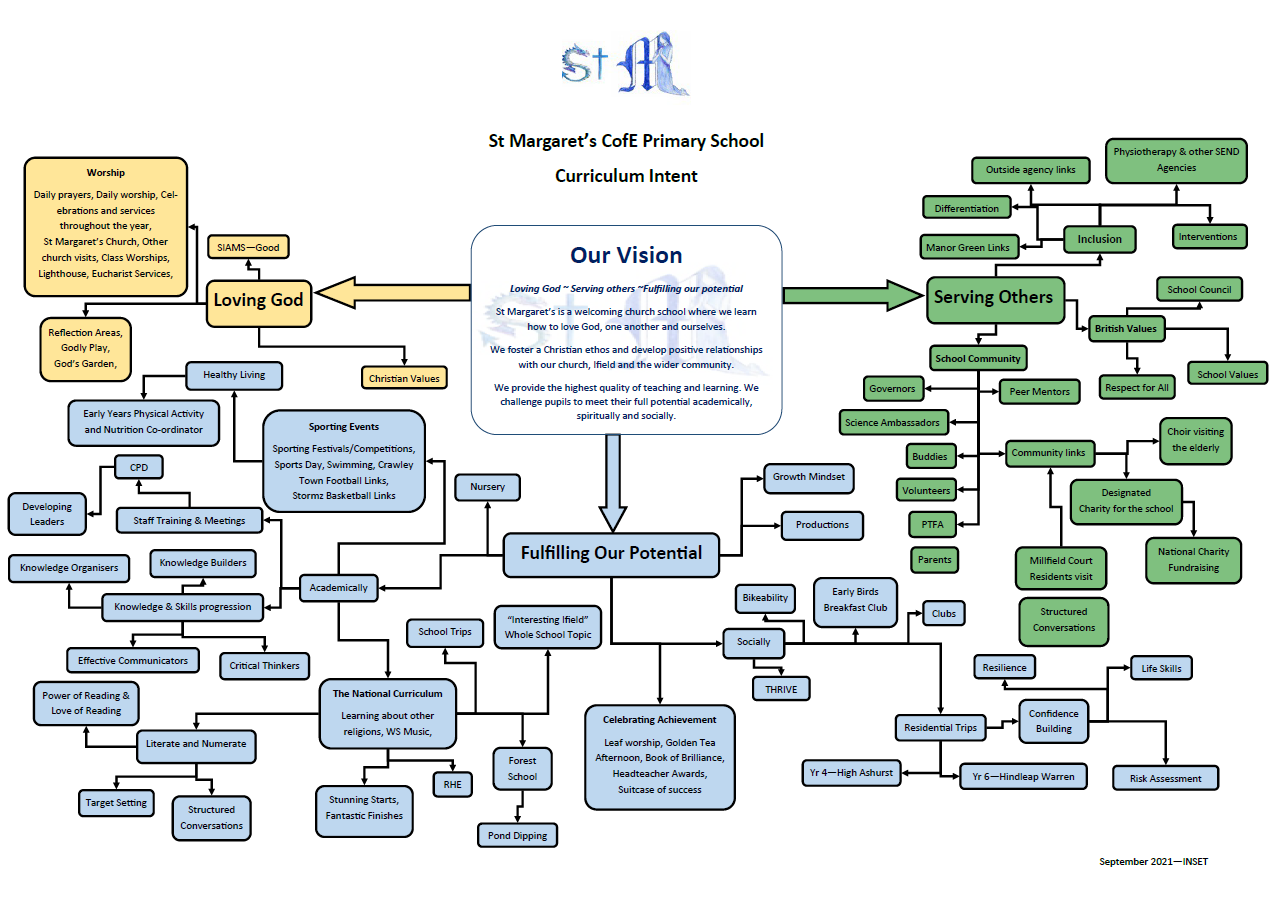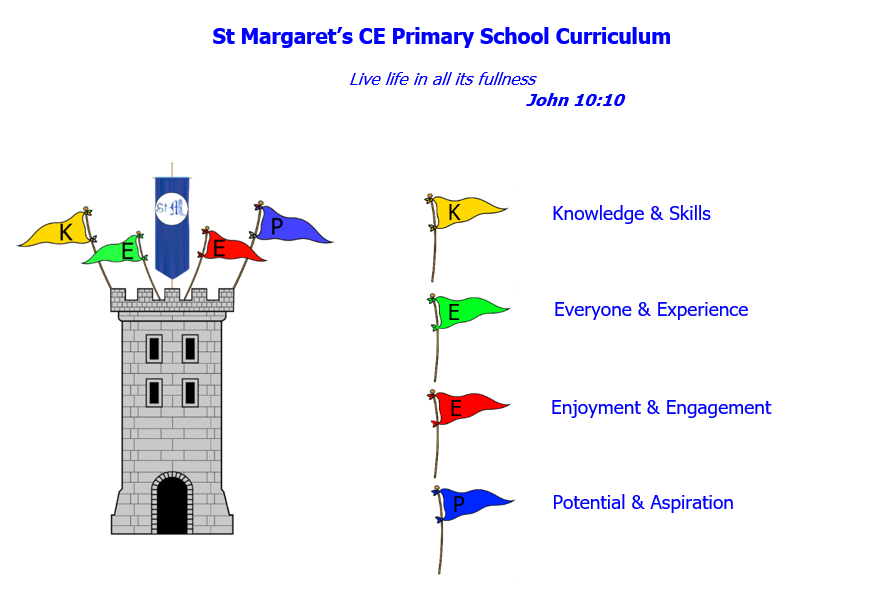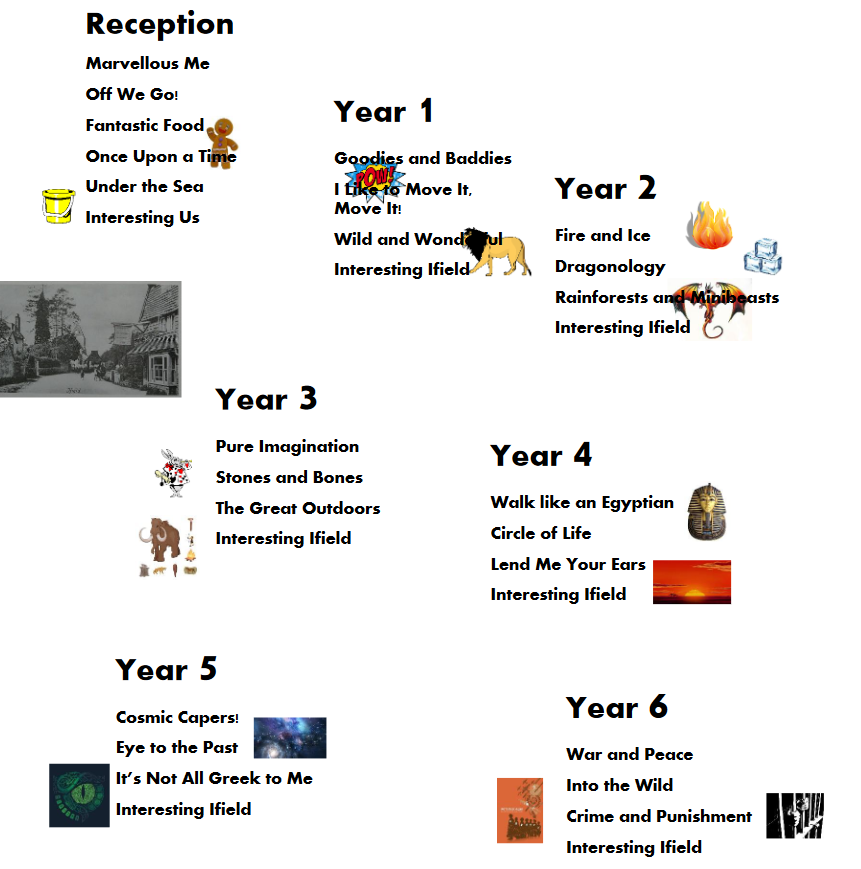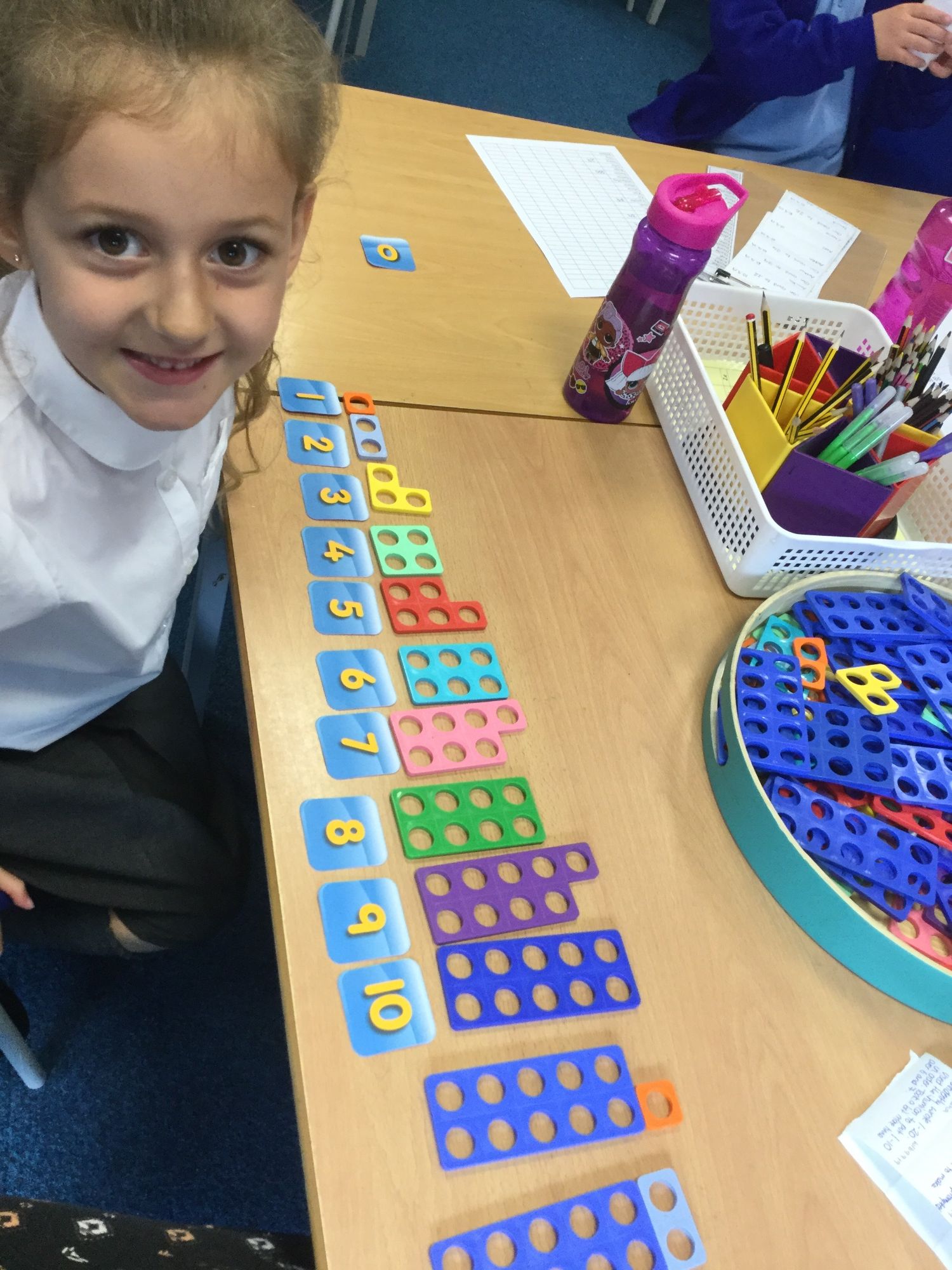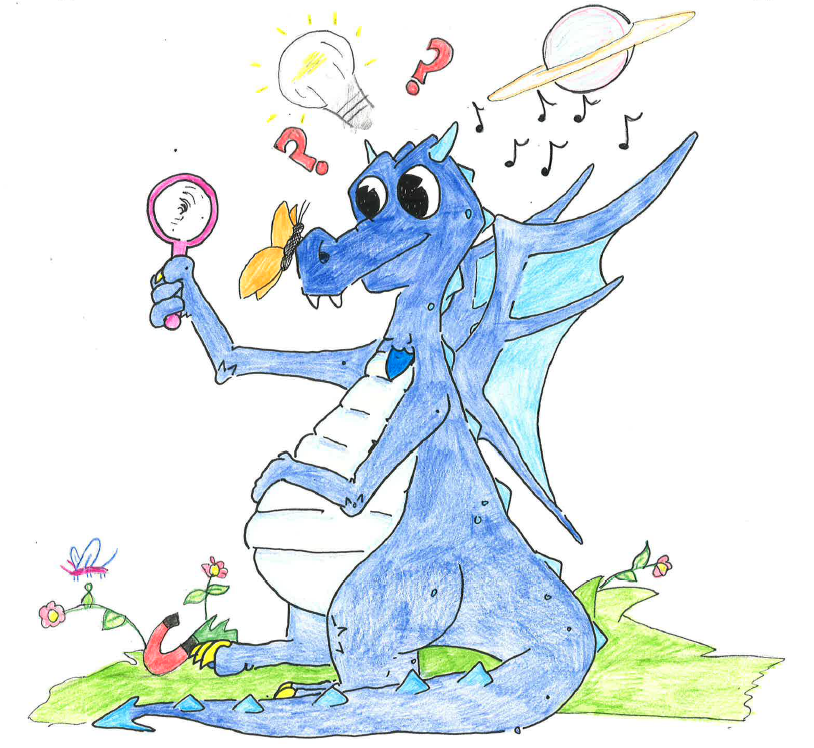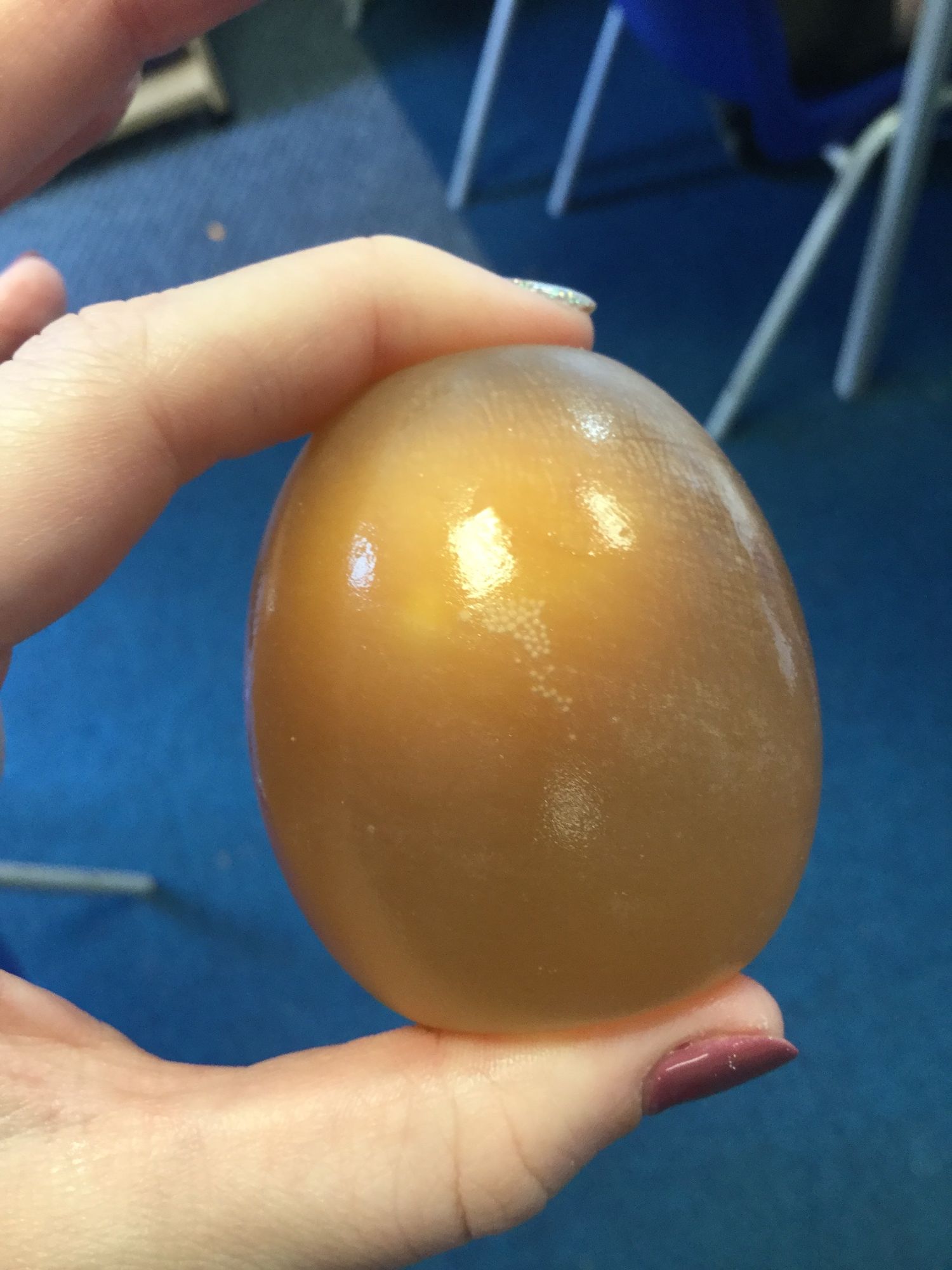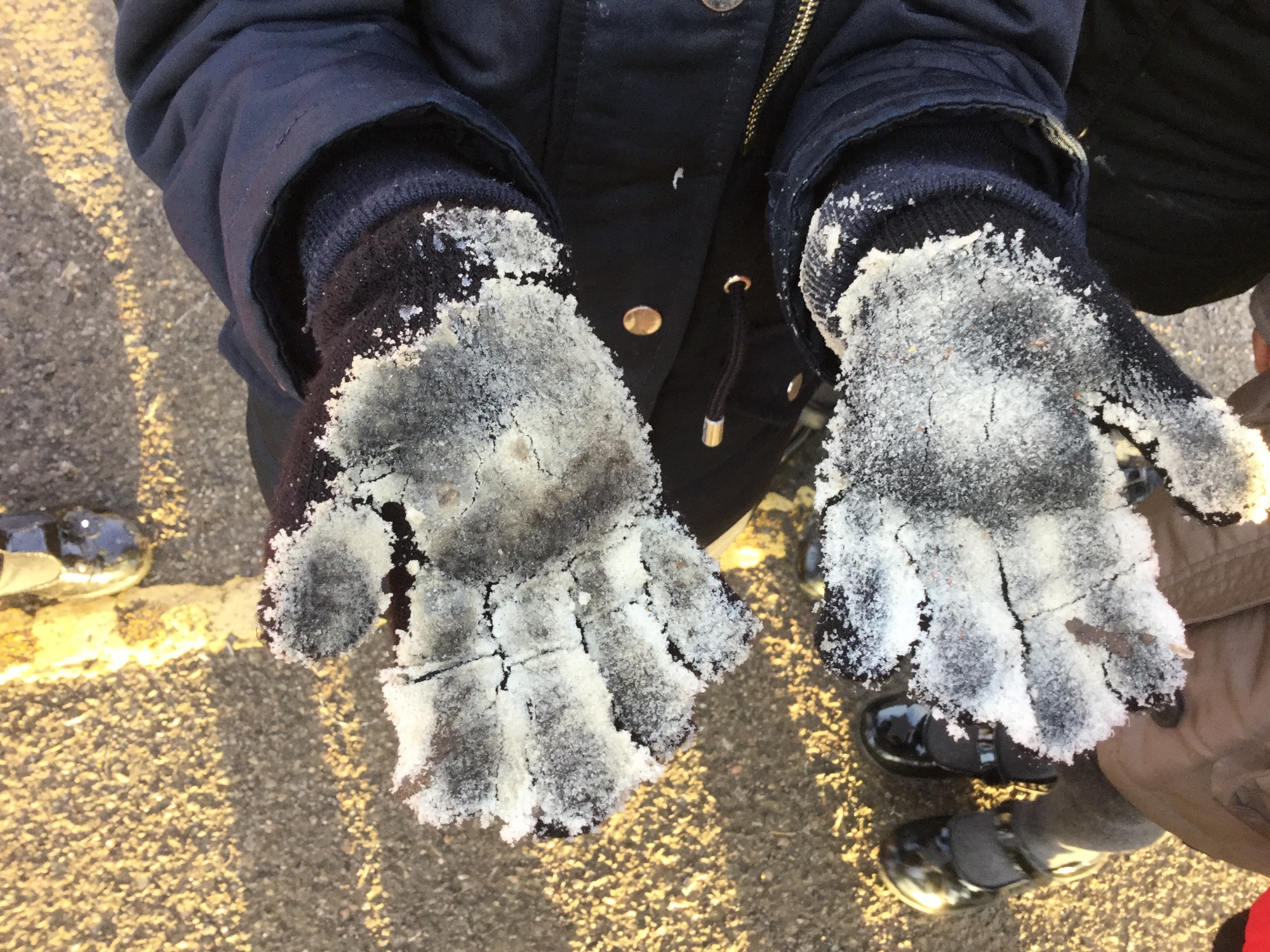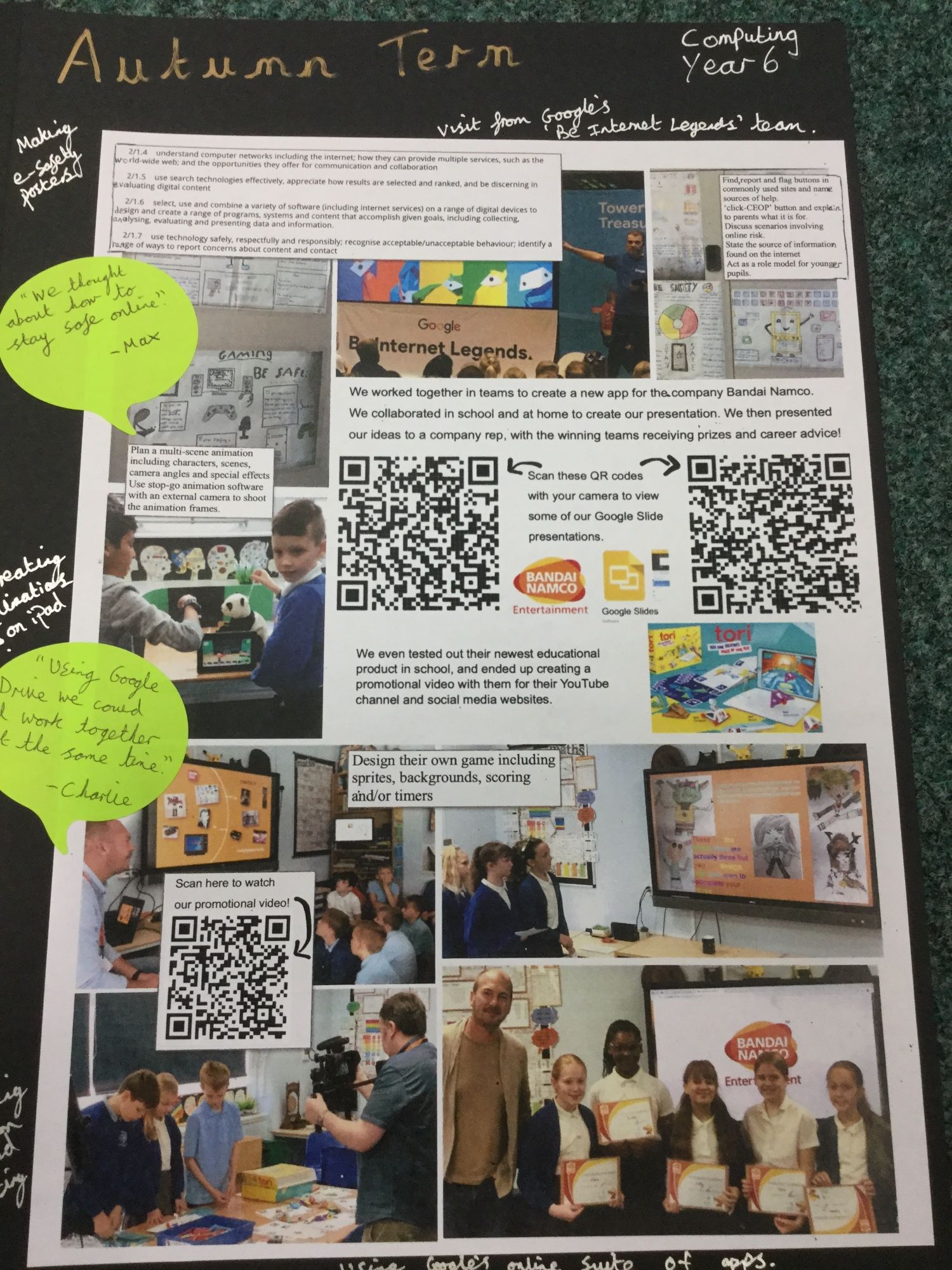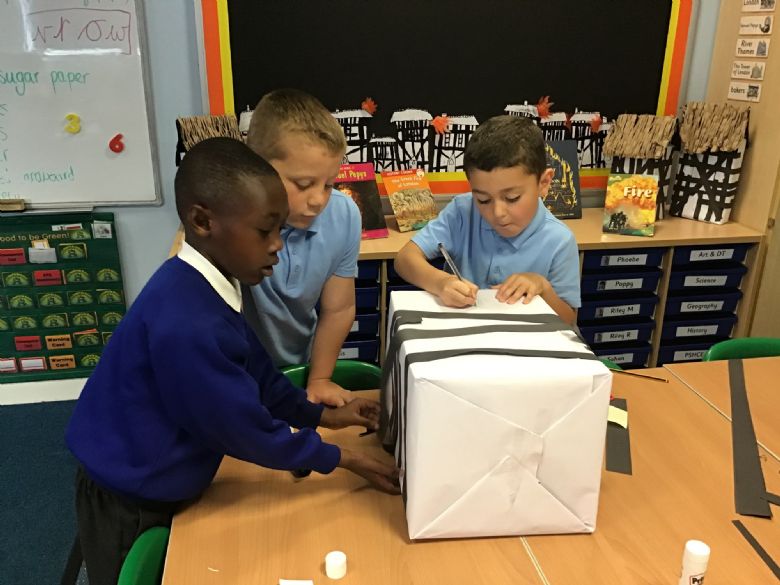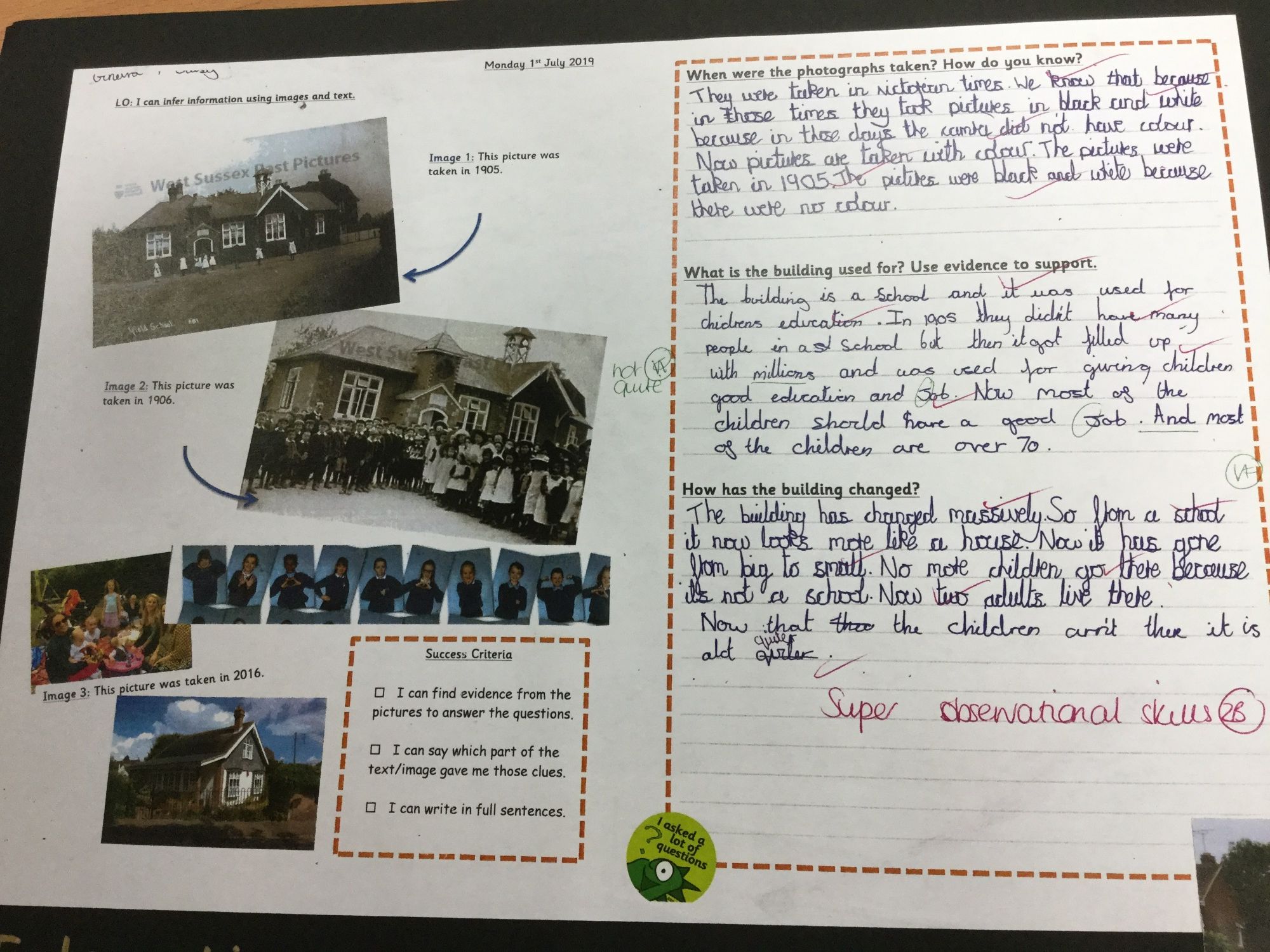Curriculum
At St Margaret's we are delivering a curriculum which meets the requirements of the latest National Curriculum review (2014). This includes the teaching of:
Core subjects: English, Mathematics, Science and Computing
Foundation subjects: Design and Technology, History, Geography, RE, Art, Relationship & Health Education (RHE), Music & PE
Modern Foreign Language in years 3-6: French
Our staff work in curriculum teams to ensure our delivery of the curriculum is relevant and engaging to our pupil's both now and in the future, providing both challenge and support where needed.
If you would like any further information about the curriculum, please see your child's class teacher in the first instance, and they will be happy to help.
Please click here or scroll to the bottom of the page to be taken to our Pedagogical Models documentation.
Curriculum Intent
At St Margaret’s CE Primary School, we deliver a broad, rich and varied curriculum which is underpinned by our Christian values and distinctive learning experiences. This is at the heart of everything we do. Every child is recognised as a unique individual with their own starting point for learning. Key learning is built upon as they progress through each key stage enabling the pupils to make meaningful connections between their learning in units of work, individual subjects and across year groups.
Our ethos and values are at the core of everything we do. They are the foundations of our teaching and learning, and provide an environment which prepares our pupils as confident, happy citizens.
We strive to achieve this through a broad, balanced and ambitious curriculum, which provides children with the knowledge and skills that they need to attain their potential. Our curriculum is driven by the aim to enable children to understand the cultural context of where they are, through the arts and culture in our society, so that they can be inspired by the opportunities around them. Our cross-curricular approach allows children to make meaningful links with their learning, build on prior knowledge and aspire for their future.
The St Margaret’s spiral curriculum is underpinned by carefully sequenced and vertically integrated knowledge. We strive for depth of knowledge and rigour across all subjects. Children at St Margaret’s experience a unique curriculum that engages and enthuses, ensuring progress for all. Procedural knowledge is developed and revisited within year groups, across subjects and throughout the school.
As children build their knowledge and skills they are challenged to apply what they know in increasingly complex ways. Our key concepts and themes are woven through the key stages and enable us to build cohesive and multi layered learning.
We aim for children to produce exceptional outcomes whilst developing their knowledge, independence and creative thinking. We aim to produce collaborators, innovators, leaders and more than anything else, young people who understand what it means to be made in God’s image.
Whole School Learning Journey
St Margaret’s Curriculum Statement
Intent
Our curriculum at St Margaret’s is founded on our mission statement and our school vision. We have interwoven aspects of both into our curriculum. Through our Christian Faith, we acknowledge our responsibility to all, to enrich lives and show love and respect. We want all children to leave St Margaret’s school as confident, well-rounded children eager to continue their learning journey.
Through our highly engaging knowledge and skills based curriculum, children can reach their full potential. We believe that we are all empowered through acquiring knowledge, and we aim to equip children to know more and remember more.
Children will experience memorable learning experiences, enjoy challenges that stretch their imaginations, have open and enquiring minds, acquire problem-solving skills and develop the ability to communicate effectively with others.
Implementation
Our curriculum is based on the National Curriculum and builds on progressive knowledge and skills that will prepare children for their future.
We have planned our broad and balanced curriculum to excite, challenge and progressively build knowledge and skills for all children. We incorporate both inside and outside learning and Forest Schools activities are planned to enhance children’s learning. Our children’s learning is enriched by visits and visitors, workshops, residentials and practical resources. Where possible, teachers organise each half-term’s learning under a ‘topic’. They plan engaging lessons to ensure children make connections across a variety of subjects with a strong focus on developing core skills such reading, writing, maths and computing.
An important aspect of our curriculum, for all children at St Margaret’s, is one of inclusion and mutual respect. This is taught through our values in Worship, in Relationships and Health Education and is embodied in our relationships with one another. The spiritual, moral, social and cultural development of our children and their understanding of British Values and the core values of our school are woven through the curriculum and Worship.
Year groups send out curriculum maps at the beginning of each topic, to provide parents and carers with information about the learning ahead.
Impact
The impact of our curriculum is assessed through a range of different strategies:
- Data which is produced from summative tests and ongoing teacher assessments
- Book looks
- Learning walks
- Pupil conferencing
- Lesson observations
- Moderation, both school and county
- Planning scrutiny
- Standardisation against National Standards
- Impact catchers based on Knowledge Organisers and Knowledge Builders
English
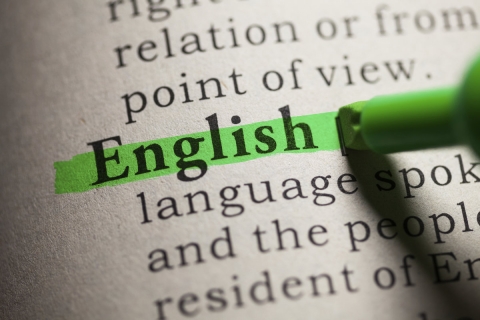 |
At St. Margaret's we want to raise the literacy achievement of children by putting quality children’s literature at the heart of all learning. We aim to ensure that every child has access to quality experiences of literacy and that all teachers have the knowledge and resources to support children to become confident, happy and enthusiastic readers and writers, with all the benefits this brings. |
Reading
We aim for all our children to become fluent, confident readers who are passionate about reading. Children who read regularly or are read to regularly have the opportunity to open the doors to so many different worlds! More importantly, reading will give your child the tools to become independent life-long learners.
We can achieve this together through:
- Read Write Inc, a program to help to your child read at school
- Encouraging children to develop a love of books by reading to them daily, at home and at school
- Giving children access to a wide range of books at school and at home
Writing
At St. Margaret's, we prioritise the teaching of writing both as a core subject and one which unlocks opportunity in all other subjects. We aim to develop children who are clear, effective communicators who respond to their audience and the context appropriately and in doing so have the opportunity to write in a widening variety of forms for different purposes using appropriate grammar forms. Additionally, we develop their ability to spell correctly and write in a cursive style of handwriting and support children of all abilities through appropriate modelling and scaffolding to enable them to express themselves through writing.
Phonics
Every Child a Reader
Intent
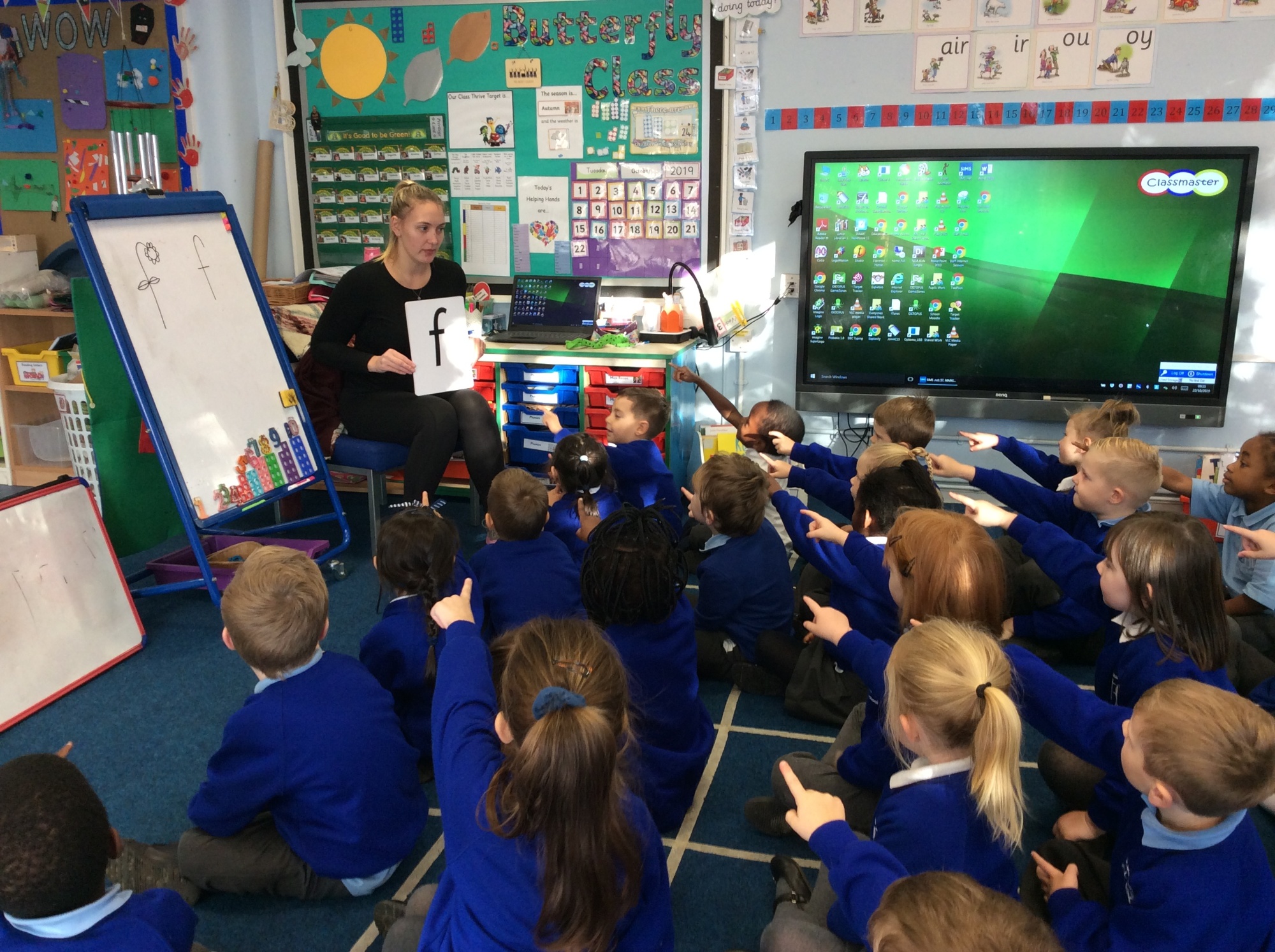 |
At St. Margaret's we aim for all our children to become fluent, confident readers who are passionate about reading. Children who read regularly or are read to regularly have the opportunity to open the doors to so many different worlds! More importantly, reading will give your child the tools to become independent life-long learners. |
We can achieve this together through:
- Read Write Inc, a program to help to your child read at school
- Encouraging children to develop a love of books by reading to them daily, at home and at school
- Giving children access to a wide range of books at school and at home
Implementation
| At St. Margaret's we use Read Write Inc Phonics (RWI) to give your child the best possible start with their literacy. We have put together a guide to how the RWI programme works together with some useful links. |
|
Miss Daly is our Read Write Inc lead teacher, so if you have questions about RWI, contact school who can refer you to her. Please take the time to read the information as it will provide invaluable information as to how you can help and support your child in reading.
What is Read Write Inc?
Read Write Inc (RWI) is a phonics complete literacy programme which helps all children learn to read fluently and at speed so they can focus on developing their skills in comprehension, vocabulary and spelling. The programme is designed for children aged 4-7. However, at SFH we begin the programme in Nursery and will continue teaching RWI to children beyond the age of 7 if they still need support in their reading.
RWI was developed by Ruth Miskin and more information on this can be found at https://ruthmiskin.com/en/find-out-more/parents/.
How will RWI be taught?
All children are assessed regularly by our RWI teachers so they work with children at the same level. This allows complete participation in lessons.
Nursery
When appropriate, children will be introduced to the initial sounds in short five minutes sessions.
In nursery, children are introduced to Phase 1 of the Letters and Sounds programme. Phase 1 supports the development of speaking and listening and awareness of sounds. Children working within Phase 1 will;
- Explore and experiment with sounds and words.
- Distinguish between sounds in the environment and phonemes.
- Show awareness of rhyme and alliteration.
They will play a variety of games and activities with the children and music has a key part in developing children’s language. Adult led activities involve modelling speaking and listening, ‘Fred talk’ to model how to blend (Can you get your c-oa-t?), interact and talk with the children is critical to the success of Phase 1 activities and to promoting the children’s speaking and listening skills.
|
Reception In Reception all children will learn how to ‘read’ the sounds in words and how those sounds can be written down. |
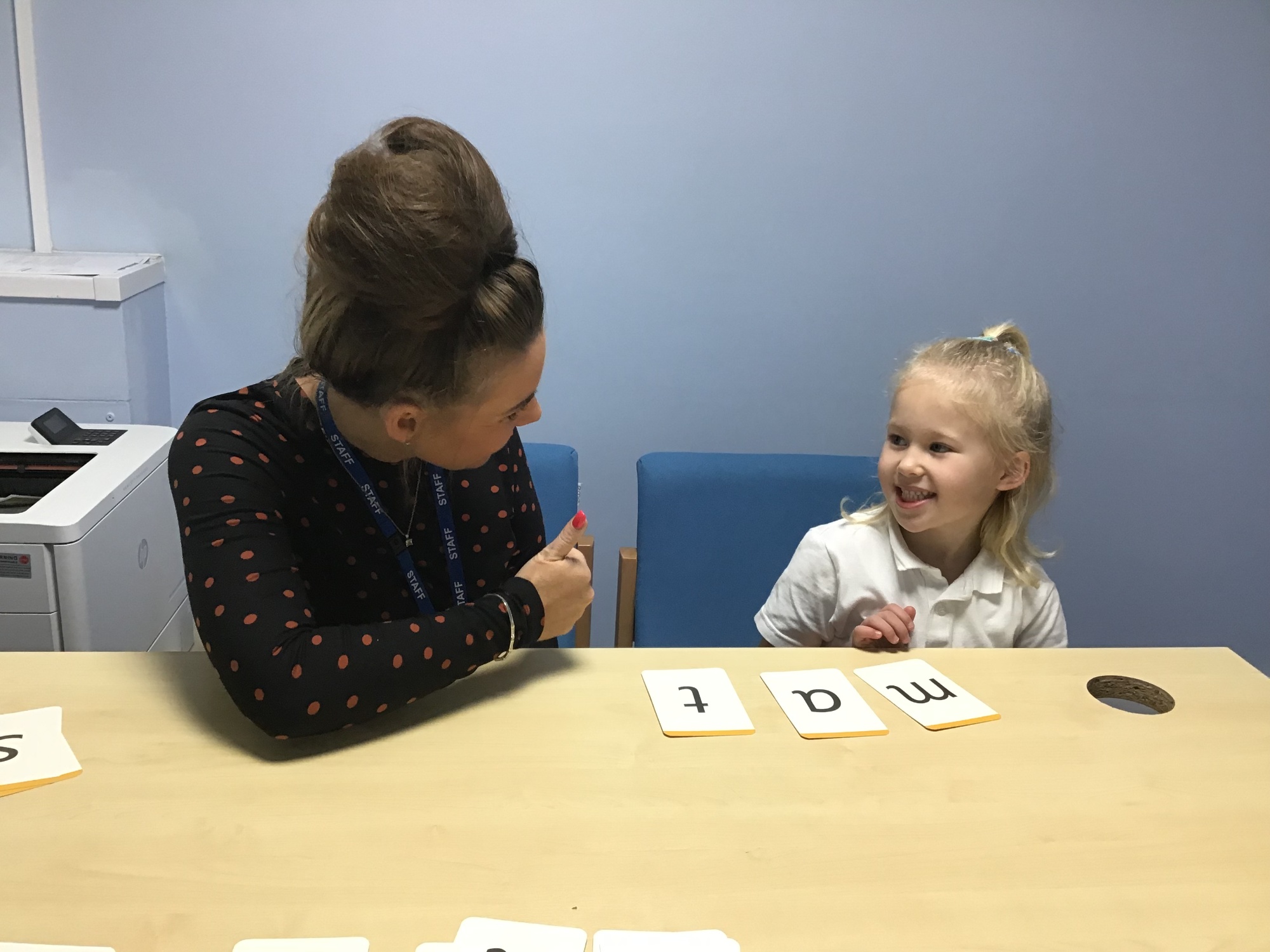 |
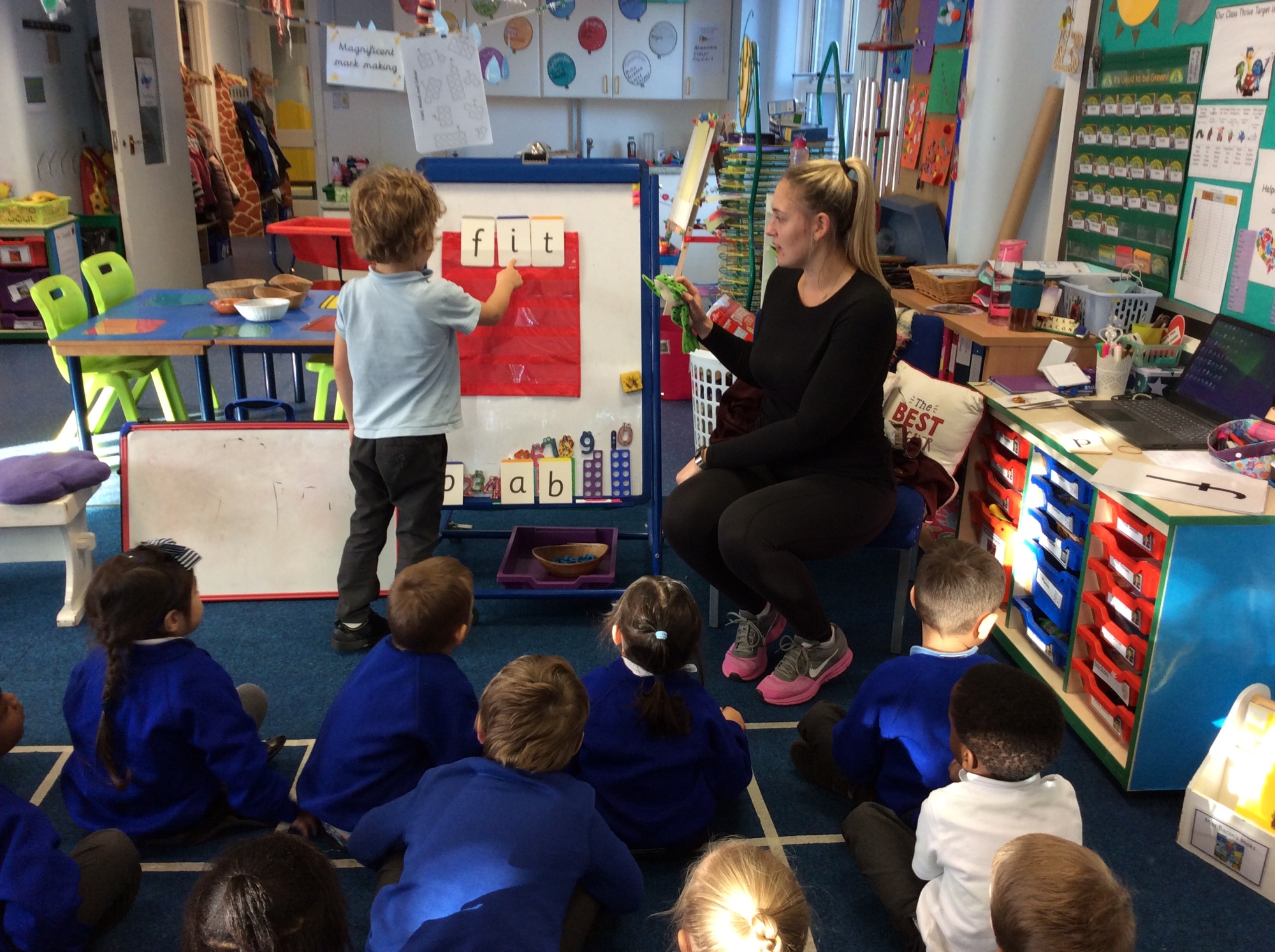 |
Reading - The children:
|
Writing
The children:
- learn to write and form the letters/letter groups which represent the 44 sounds with the help of fun phrases
- learn to write words by using Fred Talk
- learn to build sentences by practising sentences out loud before they write
Daily handwriting practice
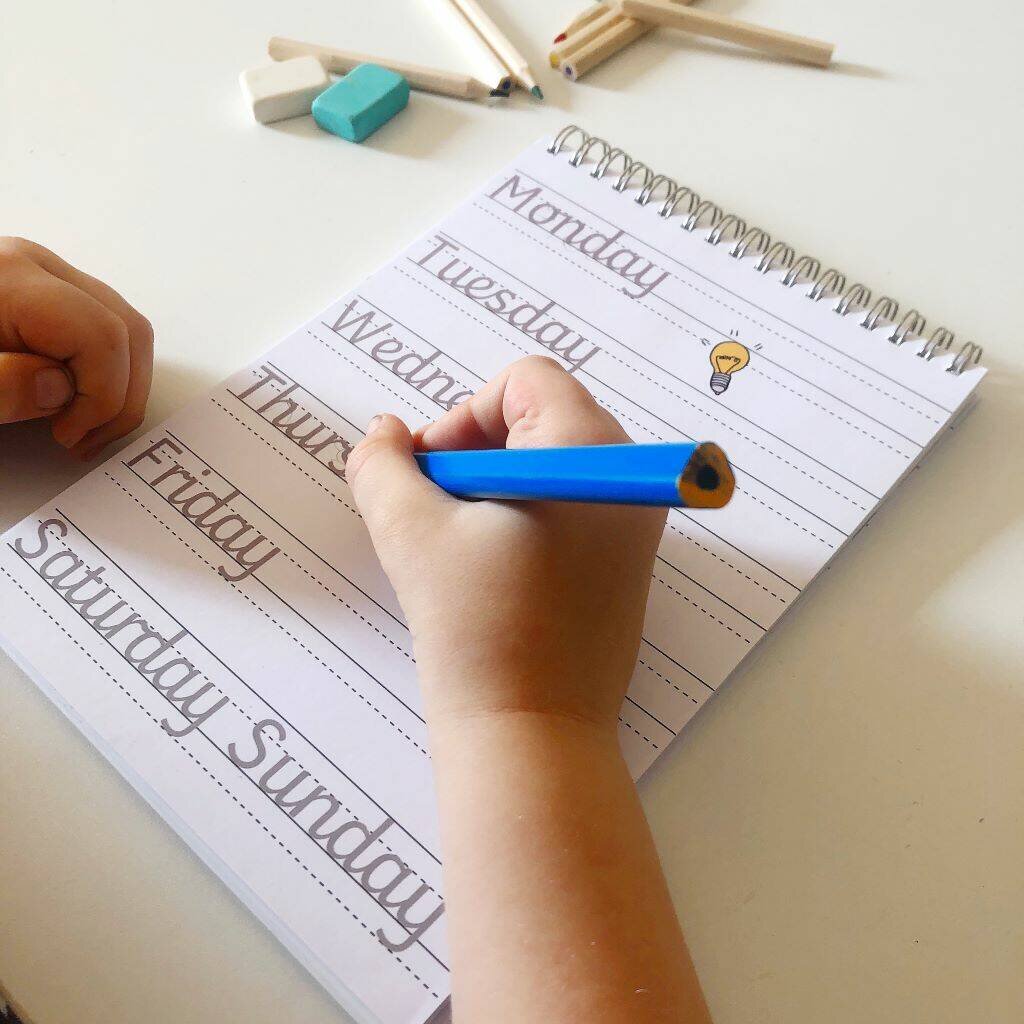 |
Children practise correct letter formation as part of their daily Speed Sounds Lesson. We use the mnemonics to help children visualise the letter before they write it down. In the ‘Write the letters’ activity in the lesson, children practise saying the handwriting phrase and the sound as they form the letter in the air and then write the sound on paper. Children need to practise handwriting under the guidance of a teacher so they do not develop habits that will be difficult to undo later. Please don’t ask children to copy letters or words. We need their attention to be focused on their own formation of letters. |
Talking
The children work in pairs so that they:
- answer every question
- practise every activity with their partner
- take turns in talking and reading to each other
- develop ambitious vocabulary
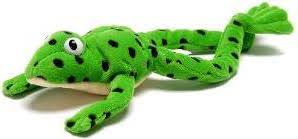 |
Read Write Inc. Phonics through the day: Fred Talk and pinny time The teaching of sounds is kept to the phonics lessons to let children enjoy the integrity of each experience. However, there are two important things to do throughout the day to help teach all children to read sounds and learn to blend quickly:
Fred Talk + Speedy Sounds = reading |
Use Fred Talk and play Fred Talk games
Speaking like Fred helps children to understand that words are made up of sounds. Teachers and teaching assistants will use Fred Talk throughout the day to help children practise blending sounds together. Fred Talk follows a consistent routine:
1. Say the word in sounds as Fred, e.g. c-a-t. Ask children to repeat. Pause to allow children to ‘jump-in’ with the whole word.
2. Say the word in sounds followed by the whole word, e.g. c-a-t, cat. Ask children to repeat.
- Use Fred Talk for single-syllable words at the end of sentences throughout the day e.g. it is time for l-u-n-ch…lunch, come and sit on the f-l-oor…floor.
- Fred Talk words at the end of the sentence and keep the words short and simple.
- Organise 5-minute Fred Talk game group sessions with those children learning to blend.
Pinny time
Pinny time helps children practise reading the sounds taught so far speedily. It is quick and easy to get going, to make sure children ‘keep up, not catch up’.
- Each teacher/TA should have their own apron or ‘pinny’ with pockets containing a set of Speed Sounds Cards.
- Timetable 5-minute pinny time sessions throughout the day. Target the children who need to increase their speed.
- Assign small groups of children for pinny time to YR/P1 staff.
- Decide on ‘Speed minute’ sessions throughout the day – children go to their pinny time adult when a bell rings. See how many sounds the group of children can read in one minute.
- Play ‘Partner practice’ – give the children a set of Speed Sounds cards to practise reading together quickly.
- Have set times every day for pinny time: before break, while waiting for the midday supervisors, waiting to go into assembly, as children go home (so parents can see what you’re doing). Make this a habit.
Year One & Year Two
Children follow the same format as Reception but will work on complex sounds and read books appropriate to their reading level. Daily sessions of RWI phonics last for 30 minutes and is supported by an additional reading session.
Five key principles underpin the teaching in all Read Write Inc. sessions:
Purpose – know the purpose of every activity and share it with the children, so they know the one thing they should be thinking about
Participation – ensure every child participates throughout the lesson. Partnership work is fundamental to learning
Praise – ensure children are praised for effort and learning, not ability
Pace – teach at an effective pace and devote every moment to teaching and learning
Passion – be passionate about teaching so children can be engaged emotionally.
Children will be taught how to read as follows:
Before you start to teach your child, practise saying the sounds below.These are the sounds we use to speak in English.
|
Fred Talk We use pure sounds (‘m’ not’ muh’,’s’ not ‘suh’, etc.) so that your child will be able to blend the sounds into words more easily. At school we use a puppet called Fred who is an expert on sounding out words! we call it, ‘Fred Talk’. E.g. m-o-p, c-a-t, m-a-n, sh-o-p, b-l-a-ck. |
The children are taught the sounds in 3 sets.
Step 1:
Set 1 Sounds are taught in the following order together with rhymes to help children form the letters correctly and instantly recognise sounds ready for blending. Please do not use letter names at this early stage. Children will also use pictures for each sound to help recognise the sound and then form the shape of the sound.
Step 2:
The children are then taught Set 2 Sounds - the long vowels. When they are very confident with all of set 1 and 2 they are taught Set 3 Sounds.
Nonsense words (Alien words)

As well as learning to read and blend real words children will have plenty of opportunities to apply their sound recognition skills on reading ‘Nonsense words’. These words will also feature heavily in the Year One Phonics Screening check in the summer term. Click here for further information on the Screening check.
Step 3:
Children will be introduced to ‘Ditty books’ when they successfully begin to read single words. The short vowels should be kept short and sharp:
Children use sound-blending (Fred Talk) to read short ditties. They will bring these home once they have read and discussed the book in class. Children will then be challenged to use their developing phonic knowledge to write short sentences.
Within all the books children will have red and green words to learn to help them to become speedy readers. Red words are words that are not easily decodable and challenge words to extend children’s vocabulary. Green words are linked to the sounds they have been learning and are easily decodable.
Dots and dashes represent the sound each letter makes.
Once your child has been introduced and taught these words in school we will send them home for you to continue practising with your child.
During the RWI session children will read the book three times and at each new reading they will have plenty of opportunities to practise using their developing comprehension skills.
Progression through the scheme
| October | December | February | April | May | July |
| Know most Set 1 sounds and begin to blend (Set 1 Sounds Group B) | Know Set 1 Sounds and blending (Set 1 Sounds Group C) | Reading Photocopy Ditties 1–20* | Reading Red Ditty Storybooks | Reading Green Storybooks | Reading Green/Purple Storybooks |
| October | December | February | April | May | July |
| Reading Green/Purple Storybooks | Reading Pink Storybooks | Reading Orange Storybooks | Reading Yellow Storybooks | Reading Yellow Storybooks | Reading Blue Storybooks |
Phonics Screening Check Year One
What is the Year 1 phonics screening check?
The Year 1 phonics screening check is a short, light-touch assessment to confirm whether individual pupils have learnt phonic decoding to an appropriate standard.
It will identify the children who need extra help so they are given support by their school to improve their reading skills. They will then be able to retake the check so that schools can track pupils until they are able to decode.
Impact
Our children love their phonics sessions and the quality of their reading and writing shows that they use and implement sounds learnt in their work. Our data is consistently above county and national averages.
Useful websites for Parents
Please find a list of websites that you may find useful in helping you and your child learn about phonics. Games and fun activity websites are also included.
http://jollylearning.co.uk/ - Games and information for parents
http://www.phonicsplay.co.uk/ - many games to play
http://www.bbc.co.uk/bitesize/ks1/literacy/phonics/play/ - fun games for the children to play
http://www.ictgames.com/literacy.html - fun games for the children to play
http://www.kenttrustweb.org.uk/kentict/kentict_home.cfm - fun games for the children to play and information for parents
http://www.ngfl-cymru.org.uk/ - fun games for the children to play
http://www.starfall.com/ - fun games for the children to play
http://www.firstschoolyears.com/ - fun games for the children to play
BBC Bitesize - many games to play covering all areas of the curriculum
Reading
Every Child a Reader
Intent
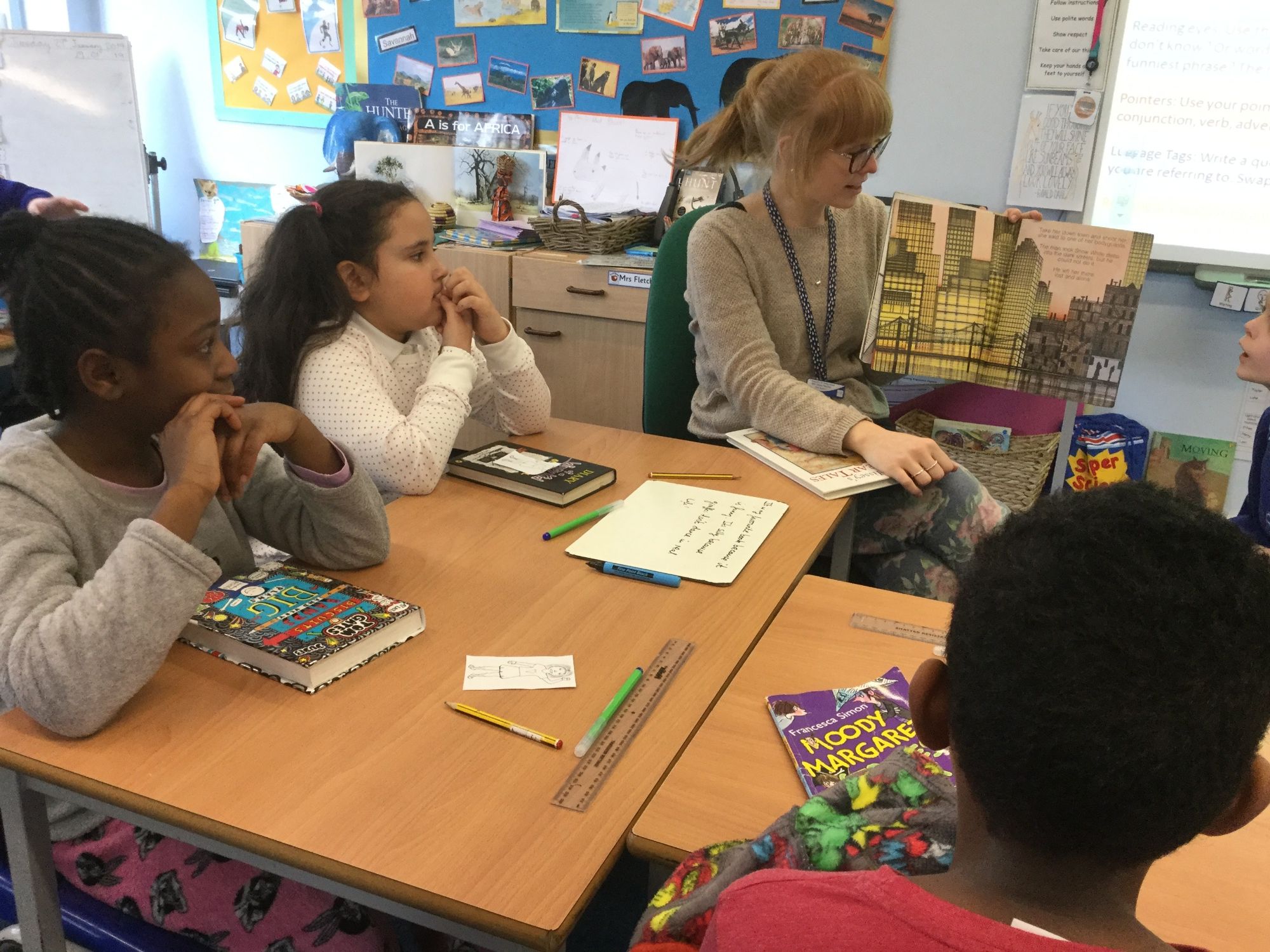 |
At St. Margaret's we are passionate about reading. Being able to read well matters. It can significantly impact on success in school and beyond. It takes them into imagined worlds far beyond their own experience, and make possible endless opportunities to explore new areas of learning, thinking and ideas. The power of reading is immense, and we want children to be able to take full advantage of the benefits, pleasure and enjoyment that it has to offer. |
We aim to develop positive attitudes towards reading so every child thinks of themselves as a reader and has fostered a love of the written word in all its various forms. We wish to create a community of readers that share, enjoy and promote reading as a skill and desirable past time.
Implementation
| We teach reading in a variety of ways at St. Margaret's School; this includes but is not limited to, carousel teaching, whole class, close text analysis, discreet phonics teaching, shared peer and 1:1 reading. Furthermore all classes have texts read to them throughout the year. This helps to promote reading as a desirable past time and something that should be valued and treasured. | 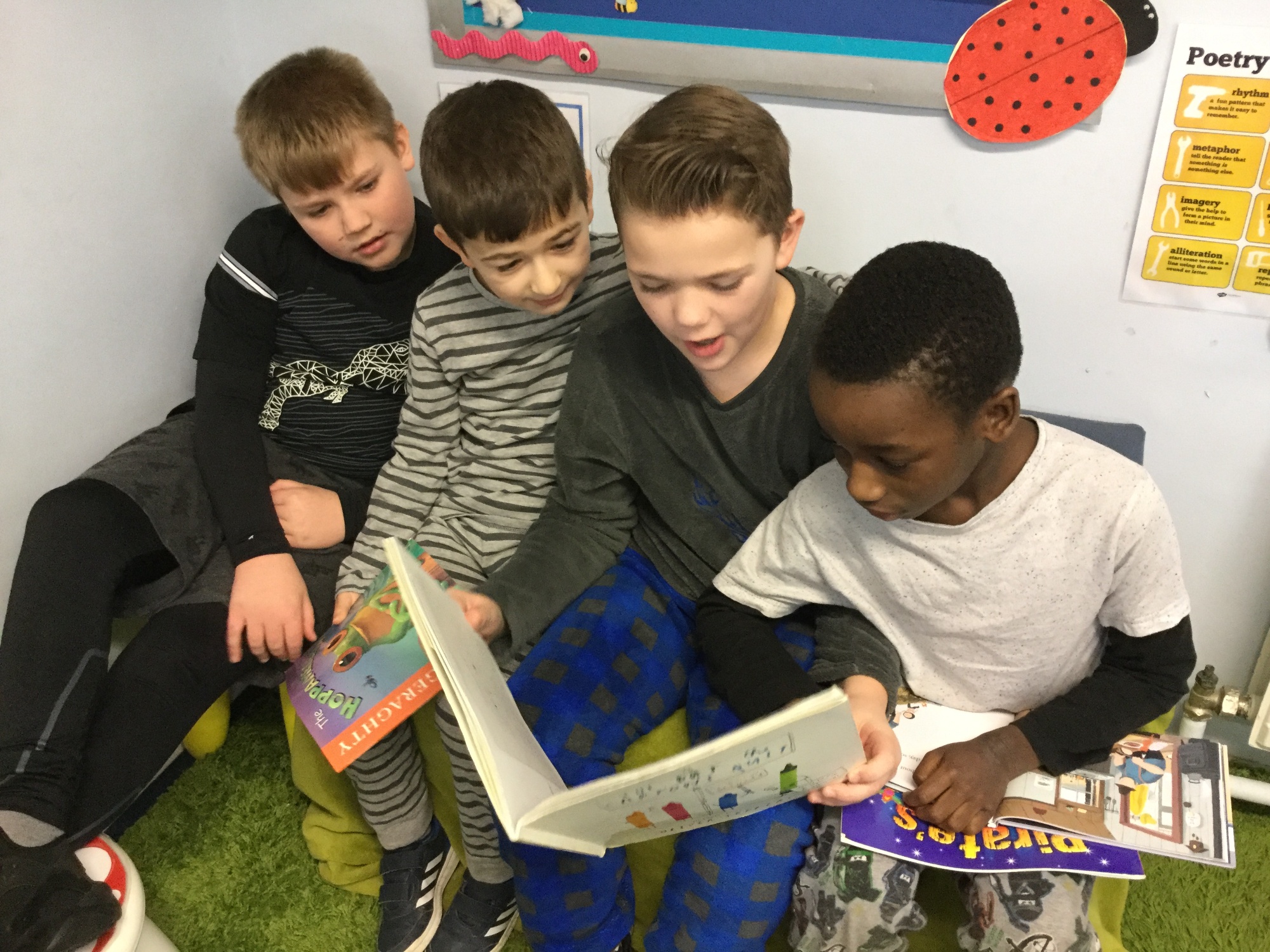 |
Reading to the Children
Our goal is to motivate children to want to read so they will practice reading independently and, thus, become fluent readers. That happens when children enjoy reading. As parents and teachers we can do for reading what fast food chains do for hamburgers? ADVERTISE! And we advertise by reading great stories and poems to children. At the end of every school day, the class teachers will read and share high quality texts to your children at a level which is beyond their reading age. This ensures that we continue to develop their vocabulary and understanding of characters and plot far beyond their reading level. It also gives them access to worlds and experiences different to their own. In this time, we also revisit favourite texts chosen from our high quality book lists.
We can help our children find the tools they need to succeed in life. Having access to information through the printed word is an absolute necessity. Knowledge is power, and books are full of it. But reading is more than just a practical tool. Through books we can enrich our minds; we can also relax and enjoy some precious leisure moments.
With our help, your children can begin a lifelong relationship with the printed word, so they grow into adults who read easily and frequently whether for business, knowledge, or pleasure.
Reading Vipers
|
|
At St. Margaret’s, Reading VIPERS are used to support children with their reading comprehension skills. VIPERS are a range of reading prompts based on the 2016 reading Content Domain Areas (CDAs) found in the National Curriculum Test Framework. Each classroom will have the Reading VIPERS displayed in the reading area of their classroom and the class teacher will make explicit links to the skill the children will be learning about. This gives all children across the school a common language to discuss their reading knowledge and understanding. |
All children will be working on VIPERS during class reading, whether it is reading as a class, in a small group, or one-to-one with an adult. It would be fantastic if parents could also be referring to VIPERS when they listen to their child read at home.
During guided reading sessions, children will rotate around a series of reading activities which focus on the content domain areas. They will be listened to by an adult twice a week, with follow up comprehension and vocabulary tasks. The sessions are organised as follows:
Early Readers (Reception, Year 1)
Children will be split into very small groups of 1, 2 or 3 children based on their reading stage and ability. This is possible when reading is taught in conjunction with a split playtime. Each group of children will be taught by the teacher, TA and usually a second adult (TA/Parent helper) over the course of the week (3 out of 5 sessions). During the remaining two reading sessions, the children will be learning independently, focused on phonics reading games / activities appropriate to the phonics stage in which they are securely working. As children’s reading skills become more developed, they may move onto reading linked to a ‘Big Question’ where they talk with a partner about an area of learning linked to reading VIPERs. This may be recorded by an adult onto stickers but there is no expectation for children to be recording their own answers in Nursery, Year R or Year 1.
Developing Readers (Year 2, Year 3)
Children will be split into five groups. They will complete two independent reading tasks each week, which require a written response and focus upon comprehension using the VIPERS approach. They will have one session in which they are able to read for pleasure (linked to a VIPER) and two sessions of focused adult support time with both the teacher and then teaching assistant to teach reading strategies and collect detailed evidence to inform next steps
Fluent Readers (Year 4, Year 5, Year 6)
The children will have five activities throughout the week, which they will rotate around. The children will have a pre-task which focuses on one or more VIPERS reading domain. This will have the dual purpose of children reading and absorbing the text, as well as orally rehearsing answers to key questions linked to a VIPERS focus. They will then work with a teacher to discuss the key questions and unknown vocabulary that has arisen from their reading. A follow up task will use the same big questions so that children can formally record their answer. The independent learning tasks will focus on the remaining VIPERS.
Question Openers
VIPERS can be used on any text that a child is reading, as well as on pictures, picture books and films! When any adult is listening to a child read, all they have to do is think of questions about the book/picture/film that cover all of the VIPERS, and there are great examples below of how you can create your own questions using the following question openers.
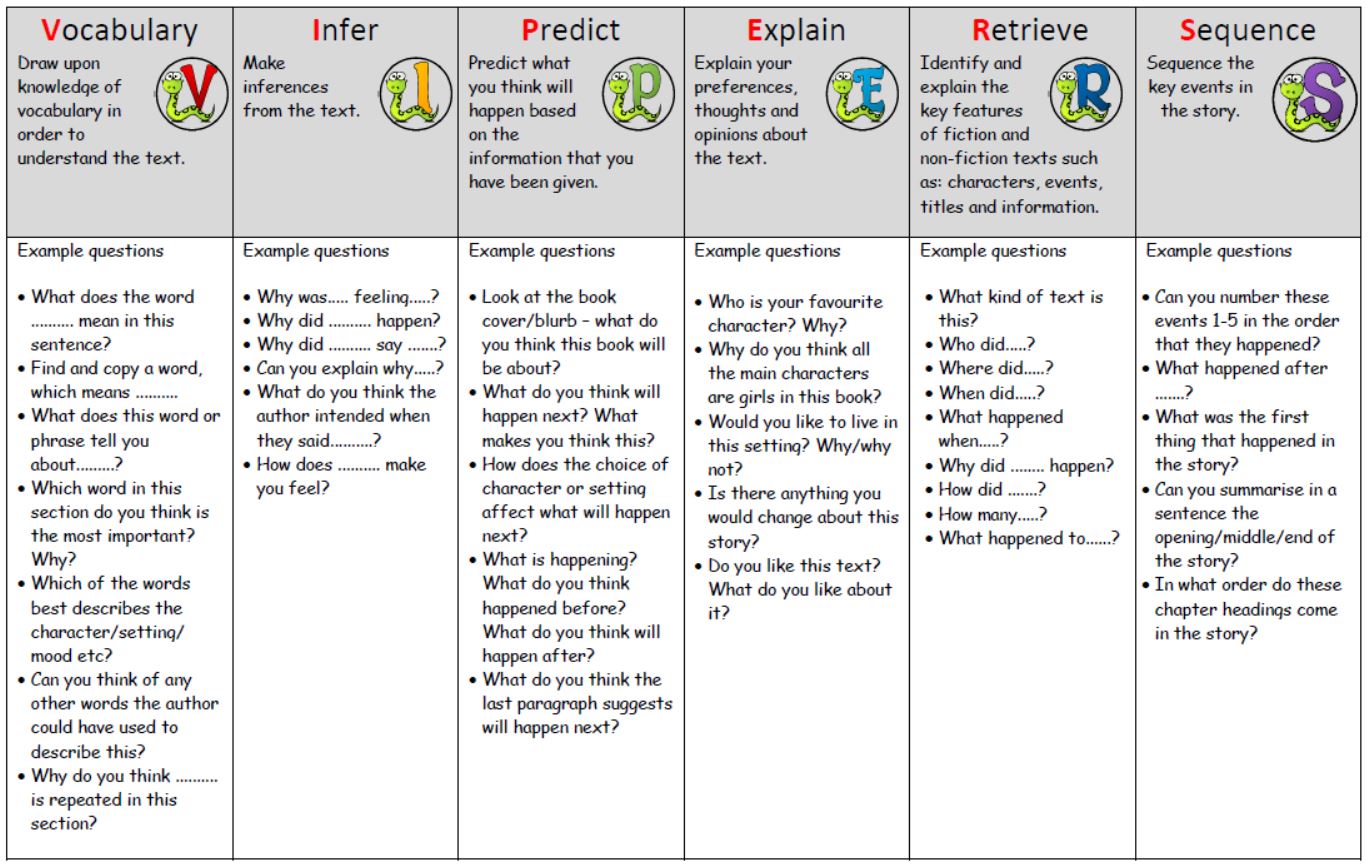
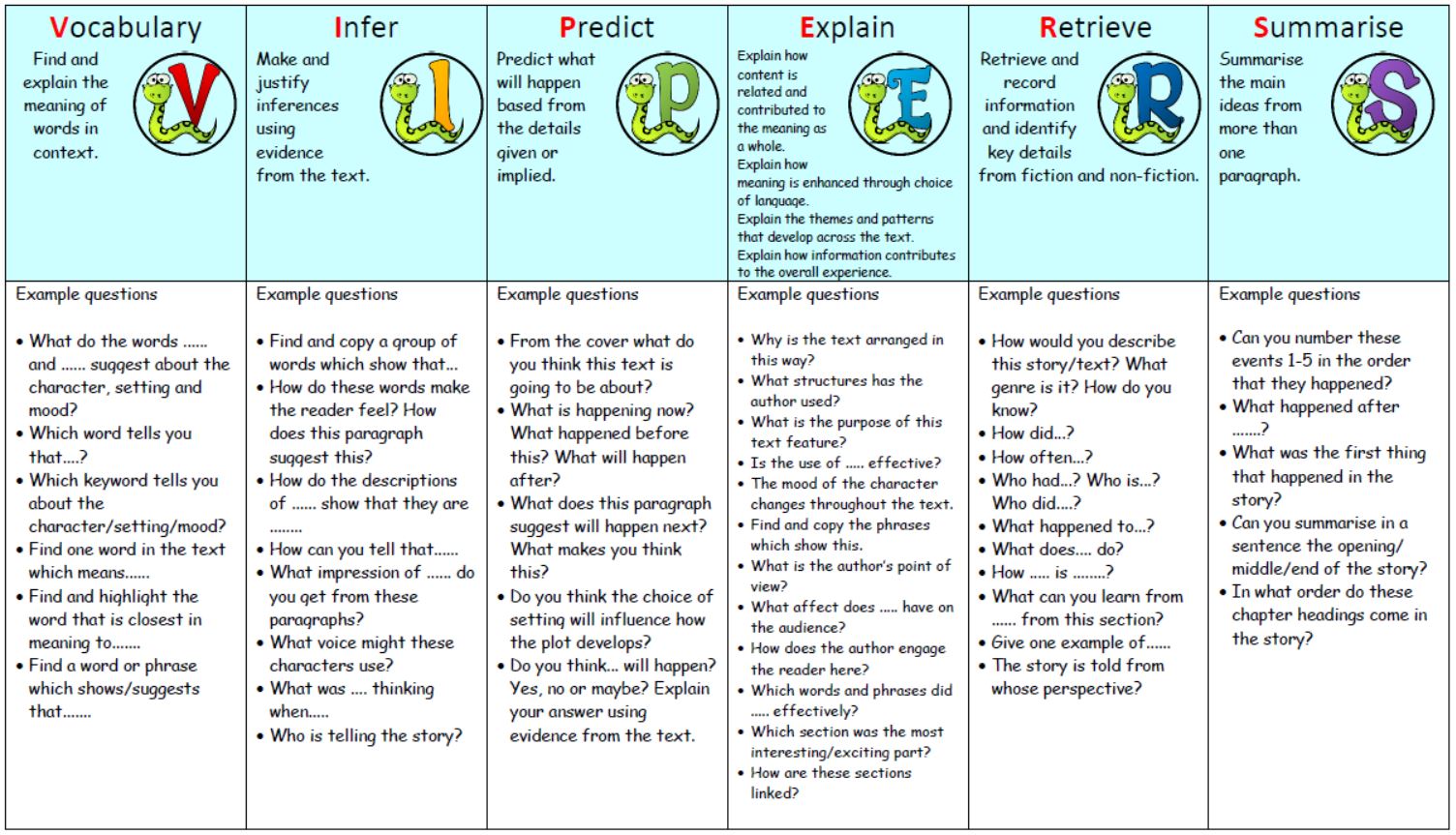
Impact
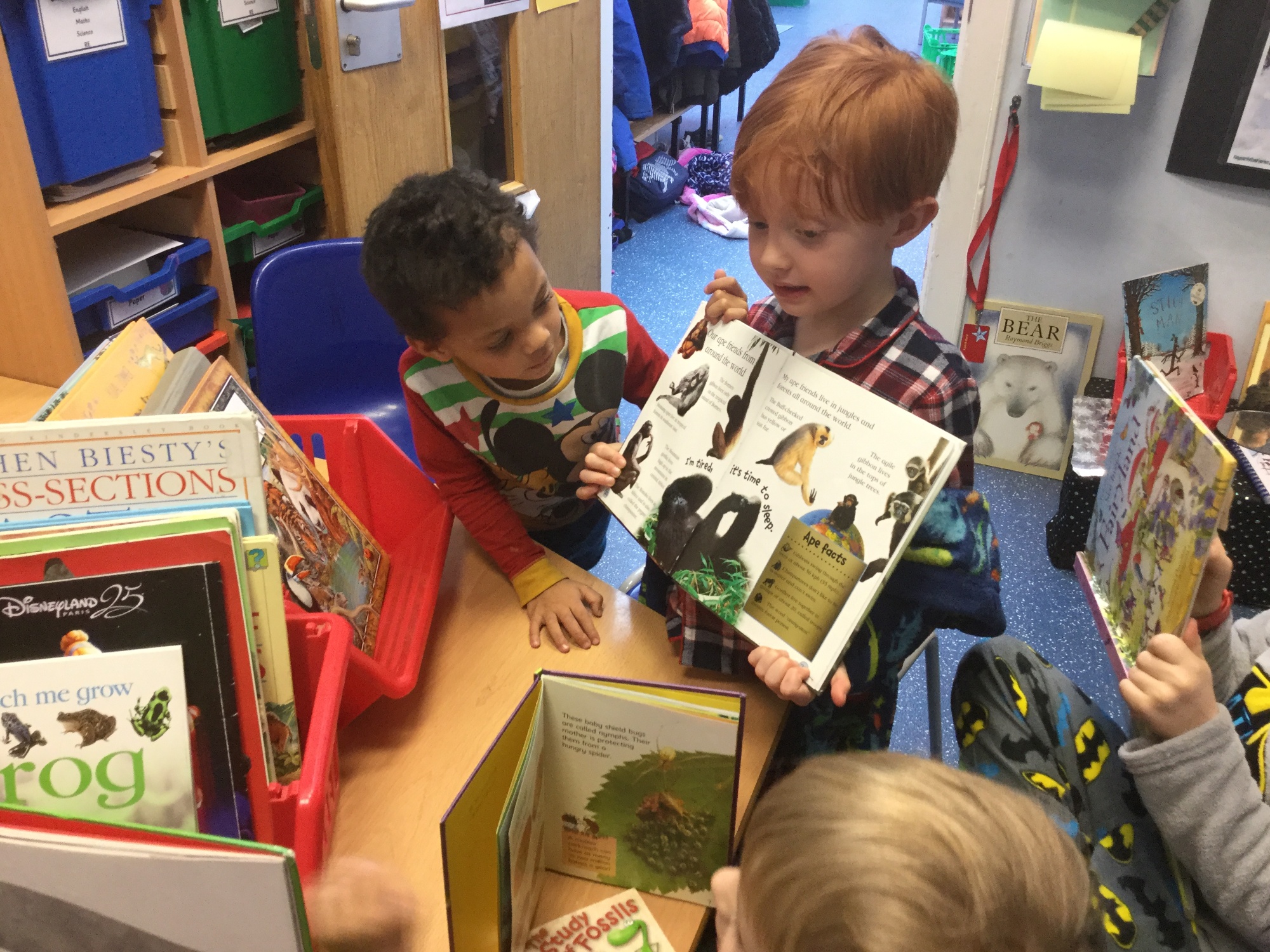 |
The impact of our reading curriculum can be clearly seen across the school through children talking about their love of reading, the quality of texts the children are reading, the quality of teaching across the school and the commitment to reading within the wider community which is evident in our hugely popular reading events and reading volunteer programme. Phonics data is above national average and county results. For 2019, Key Stage 1 results show that data is above national and county averages in reading. KS2 reading results are rising over time. |
Useful Links
http://www.wordsforlife.org.uk/
https://www.phonicsplay.co.uk/
https://www.bbc.co.uk/cbeebies/shows/bedtime-stories
ARecommended Book List
Writing
Intent
At St. Margaret’s Primary School, we follow the programmes of study from the National Curriculum to ensure writing is sequenced progressively. We provide all children with the knowledge, skills and understanding that they need regardless of their background or their starting points. We prioritise the teaching of writing both as a core subject and one which unlocks opportunity in all other subjects to ensure coherence and quality writing across the curriculum. We aim to develop children who are clear, effective communicators who respond to their audience and the context appropriately and in doing so, have the opportunity to write in a widening variety of forms for different purposes using appropriate grammar forms. We aspire for the children to leave St Margaret’s as confident writers who can spell accurately and produce writing for a range of different purposes.Implementation
In Early Years class teachers plan for opportunities for writing in both the indoor and outside areas. Children in Early Years have the opportunity to write on a daily basis through self-initiated learning and structured adult led tasks throughout the environment. We encourage the children to write independently from an early age.. Each classroom has a well organised writing area that over the year includes a variety of different resources for mark making and writing. Activities are planned daily to develop children’s fine and gross motor skills. In daily phonics sessions, children are taught to use and practise their writing skills.
In Key Stage 1 and 2, English units can be from 1 to 3 weeks long depending on the writing purpose. From Year 2 to Year 6, all children are expected to produce three pieces of extended writing per term covering a range of genres. In these units, KS1 teachers ensure that they recap prior knowledge, engage the children in lots of talk about the writing as well as modelling and completing shared writing activities. Pre-teaching vocabulary is also key to the writing process in KS1 and providing children with first hand experiences to equip them with all of the tools to complete quality writing.
In Key Stage 2, ‘ideas books’ are used across the school for English lessons. These books are a way of presenting all the build up to a piece of writing and they are individual to each child. The purpose of an ideas book is to record and plan the content of their piece of writing in that unit, including a grammar lesson which is linked to the piece of writing. As well as these English lessons, we teach grammar, spelling and handwriting daily.
All learners and pupils groups are carefully considered. Scaffolds and support are in place to ensure that all children achieve. We use adaptive teaching techniques alongside Quality First Teaching to enable all children to be writers including Pre-Teaching and Post-Teaching to all pupil groups who need additional support to be able to write to the best of their ability.
Impact
Assessment in writing is ongoing as teachers and leaders carry out in-depth assessments of writing in order to oversee attainment and progress. We assess spellings half termly through parallel spellings and ongoing monitoring of children’s work is used to inform next steps. Monitoring includes: regular book looks, lesson observations, pupil voice and data analysis. Interventions are put in place if children are requiring further support.
Pupils will make good progress from their own personal starting points. By the end of Year Six, they will be able to write clearly and accurately and adapt their language and style for a range of contexts, purposes and audiences. Our pupils will acquire a wide vocabulary and have a strong command of the written word. Most importantly, they will develop a love of writing and have an individual flair.
The policies associated with English can be found on our Policies page. Click here to be taken to the Policies page.
Mathematics
Intent
At St. Margaret's we understand the importance of reasoning and problem solving within maths, to prepare children for the wider world and their future education. Every child is encouraged to be curious, ask questions and to test their ideas.
Our aim is for every child, to reach their full potential by:
-
becoming capable and well-rounded mathematicians
-
being prepared for the wider world, future education and approaching the subject with a sense of enjoyment and curiosity.
-
reasoning mathematically through a variety of methods.
-
solving problems by applying their mathematics to a variety of problems with increasing sophistication.
We take responsibility and set high expectations for all children including those with SEND, EAL and those who are in receipt of the Pupil Premium Grant by constantly reviewing and adapting teaching to ensure provision is always accessible and challenging for all.
Implementation

At St. Margaret’s, mathematics follows the concrete – pictorial – abstract approach to enable all children including those with SEND, EAL and those who are Disadvantaged to be able to move fluently between representations of mathematical ideas. We encourage our pupils to make rich connections across mathematical ideas to develop fluency, mathematical reasoning and competence in solving increasingly sophisticated problems. This is supported through a variety of resources, including physical apparatus and well-known scaffolds, such as Numicon, tens frames and part whole models.
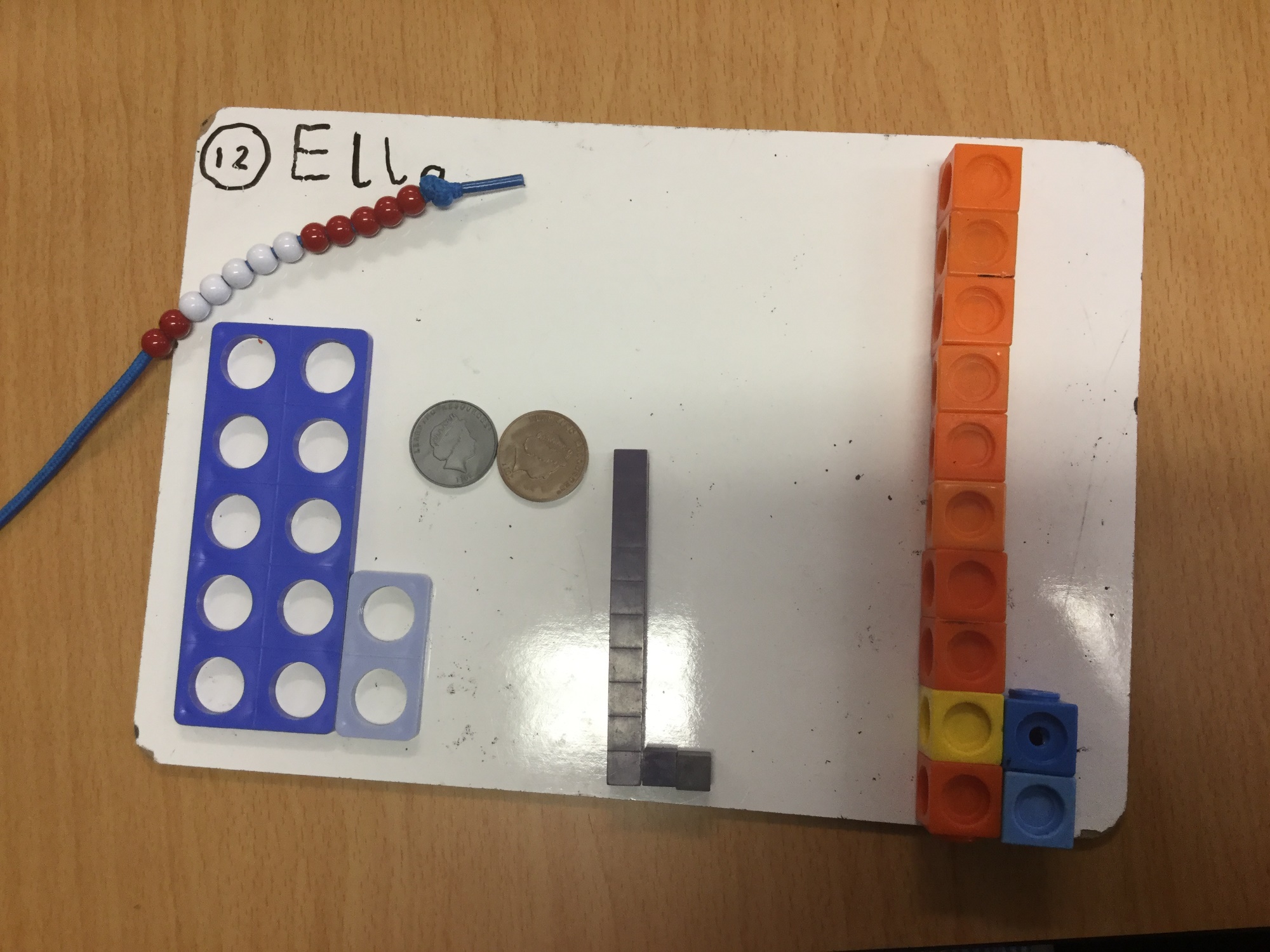
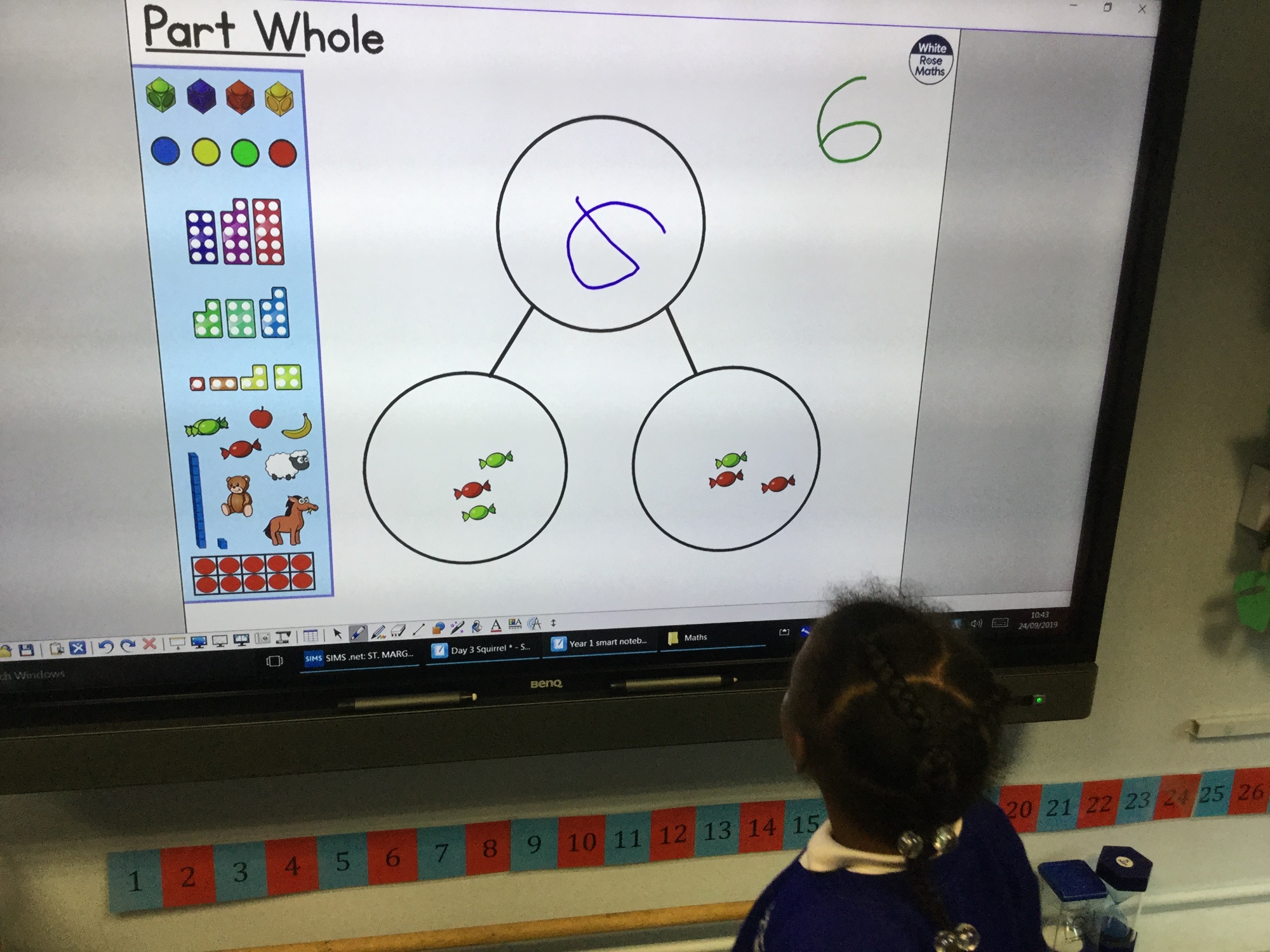
Our curriculum is structured in a way that allows children to revisit, consolidate and master all aspects of mathematics. This is achieved through the provision of our long term schemes of learning, ensuring a spiral curriculum where children re-visit concepts throughout the year in order to embed learning. Progression in calculation is also driven by our Calculation Policy, which has been updated to match current mathematical and educational thinking. Please click here to be taken to the videos in the Support Page.
Proficiency in multiplication tables is developed through explicit teaching of individual times tables. This is further supported through the use of deliberate practise using ‘Time Table Rockstars’, ‘Numbots’ and carefully planned provision in class for all children including those with SEND, EAL and those who are Disadvantaged.
In addition, we offer parental support through in-school sessions as well as the provision of online videos and tutorials.
Impact
Our progress and attainment in Mathematics is in line with national averages, indicating that our provision for all pupils, including the more able, is good.
Children leave St. Margaret’s as well rounded mathematicians ready for the next stage of their education.
By the end of KS2, evidence from pupil interviews, work scrutinies, lesson observations and assessment data clearly shows that our pupils have a good understanding and remember the mathematical knowledge, concepts and procedures to ensure readiness for the next stage of their learning.
| Year Group | Link |
|---|---|
| Reception | Click here for the Reception Calculation Policy |
| 1 | Click here for the Year 1 Calculation Policy |
| 2 | Click here for the Year 2 Calculation Policy |
| 3 | Click here for the Year 3 Calculation Policy |
| 4 | Click here for the Year 4 Calculation Policy |
| 5 | Click here for the Year 5 Calculation Policy |
| 6 | Click here for the Year 6 Calculation Policy |
|
|
|
| Addition | Click here for the Reception Calculation Policy |
| Subtraction | Click here for the Reception Calculation Policy |
| Multiplication | Click here for the Reception Calculation Policy |
| Division | Click here for the Reception Calculation Policy |
|
|
|
| Reception | Click here for the Reception Knowledge Organiser |
| 1 | Click here for the Year 1 Knowledge Organiser |
| 2 | Click here for the Year 2 Knowledge Organiser |
| 3 | Click here for the Year 3 Knowledge Organiser |
| 4 | Click here for the Year 4 Knowledge Organiser |
| 5 | Click here for the Year 5 Knowledge Organiser |
| 6 | Click here for the Year 6 Knowledge Organiser |
Science
|
|
Intent At St Margaret's we believe that a broad, balanced, engaging and inclusive science education is the entitlement of all children. We are preparing our children for life in an increasingly scientific and technological world while fostering concern about, and active care for, our environment. Science in our school is about developing children’s knowledge (substantive and disciplinary), ideas and ways of working that enable them to make sense of the world in which they live through investigation, as well as using and applying process skills. This is achieved through quality first teaching, high expectations for all and carefully planned differentiation and adaptations so all pupils can achieve their potential. |
Staff at St Margaret's believe science in our school is good when...
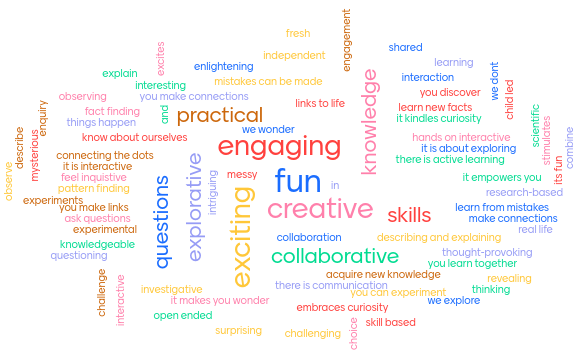
|
Implementation Our ‘Science Vision and Principles’, developed with all the school community, underpin all science learning both inside and outside the classroom. All children learn science in ways that are imaginative, purposeful, well managed and enjoyable, monitored by both the subject leader and science ambassadors. We use the ASE PLAN documents to scaffold our planning and to ensure continuity and progression in both knowledge and skills. We ensure teaching and planning is adapted to meet the needs of all attainment levels, accurately pitched for everyone. Our science curriculum ensures that both knowledge (substantive and disciplinary) and skills are taught in partnership to gain the greatest depth of understanding. Children in the EYFS explore the world around them, with specific science work covered through the area of learning ‘Understanding the World’. In KS1 and KS2, science is experienced in units through a combination of whole class teaching, group and individual work. Where possible, our science teaching is linked with the class topic to provide a more broad and balanced approach to teaching and learning. Science capital is further strengthened through the roles of the science ambassadors, whole school science display, STEM club, close links with a STEM scientist (a previous pupil of the school), super science bag which is used at home, trips/visitors and science links in other subjects, as well as Forest School. |
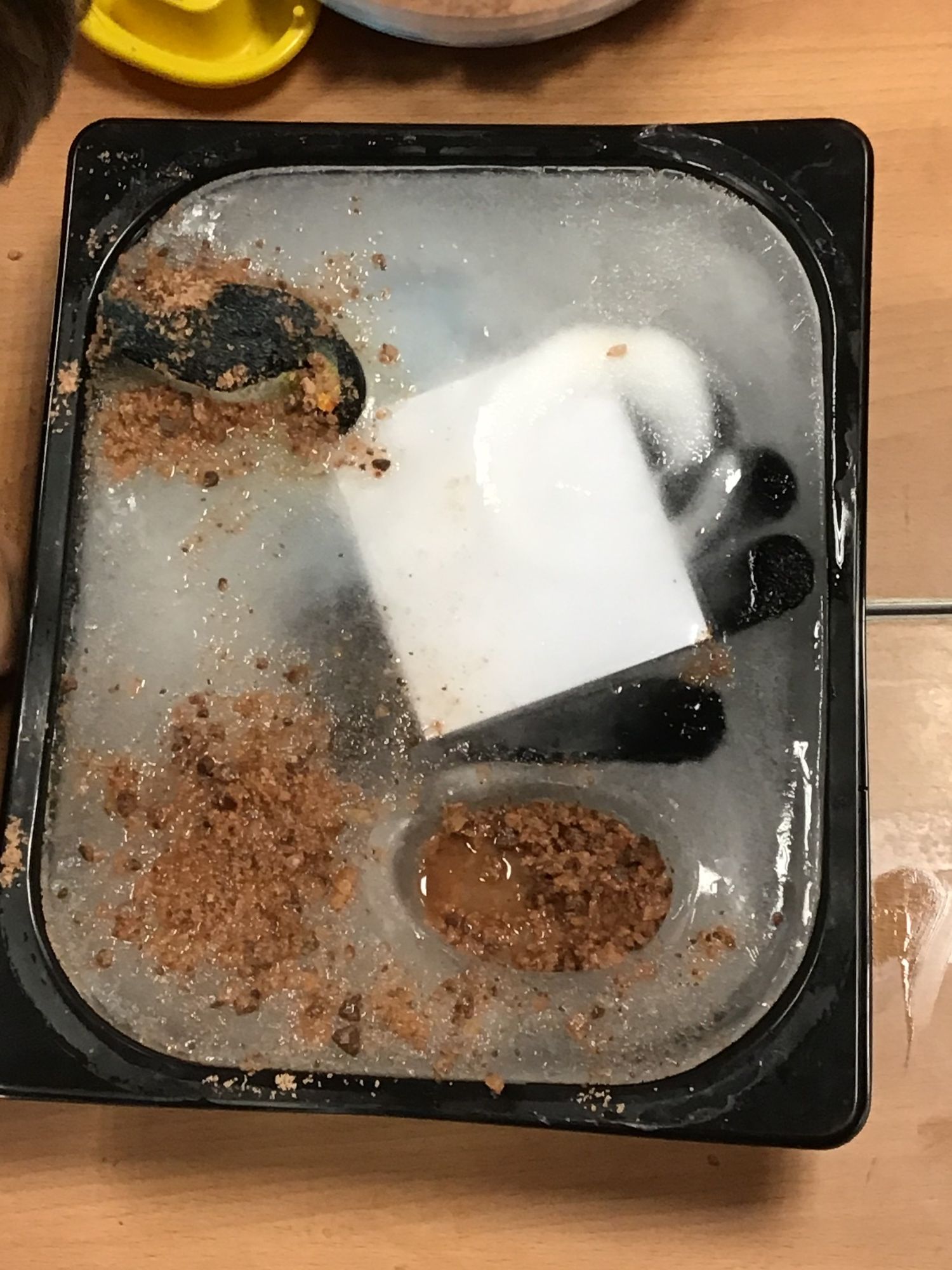 |
Impact
Our science curriculum provides our children with an enjoyable experience of science, so that they will develop a deep and lasting interest and may be motivated to study science further. It ensures pupils develop positive attitudes to science, building on their natural curiosity. It enables our children to become effective communicators of scientific ideas, facts and data.
As of May 2021, St Margaret's Primary School are proud to announce that we are in the process of applying for the Primary Science Quality Mark (PSQM).
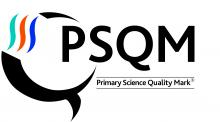
| Year Group | Link |
|---|---|
| 1 | Click here for the Year 1 Knowledge Organiser |
| 2 | Click here for the Year 2 Knowledge Organiser |
| 3 | Click here for the Year 3 Knowledge Organiser |
| 4 | Click here for the Year 4 Knowledge Organiser |
| 5 | Click here for the Year 5 Knowledge Organiser |
| 6 | Click here for the Year 6 Knowledge Organiser |
| Click here for the Science Long Term Plan | |
| Click here for the Science Knowledge Builder. | |
| Click here for the Science Progression of Skills. | |
| Click here for the Science Curriculum - Big Question Road Map. | |
| Click here for the Science Vision and Principles for St Margaret's | |
Our School STEM Scientist
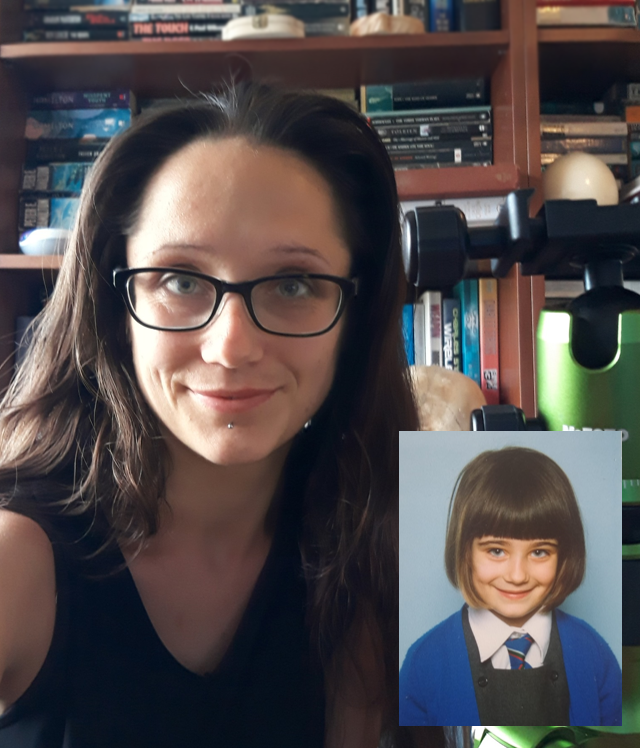 |
Susannah grew up in Crawley and was a pupil at St Margaret's from 1989-1995. Her favourite thing at school was writing stories, and she wanted to be a writer when she grew up. Later on she really enjoyed history, so she went to Durham University to study archaeology, and worked on an archaeological dig with skeletons. But life doesn't always go in a straight line! Susannah enjoyed the science side of archaeology so much she ended up going back to university to study molecular biology. She now works at the University of Cambridge, researching bacteria and their DNA (which involves almost as much writing as she'd hoped to do when she was little!) |
|
|
|
Art
Intent
At St Margaret’s CE primary School we aim to inspire and develop children’s creativity and self-expression through an exploratory Art Curriculum. Year on year, children will experience a range of media and artists whilst also developing their ability to experiment and make informed choices about their artwork. Knowledge and skills are developed and embedded, along with self-reflection and discussion, as children progress through the school. We aim to inspire and develop the creativity and self expression of all children including those with SEND, EAL and those in receipt of the Pupil Premium Grant through an aspirational and inclusive art curriculum. All children can build on their knowledge and skills year on year to reach their full potential.
Implementation
All children, including those with SEND, EAL and those in receipt of the Pupil Premium Grant are taught the knowledge and skills of drawing, painting, sculpture, and other art, craft and design techniques.
Children rehearse, explore and evaluate ideas in annotated sketchbooks using subject specific vocabulary from Knowledge Organisers. Final outcomes show skill and knowledge development and are individual and independent.
Our Art Curriculum is supplemented by the Kapow Primary Art scheme. Teachers carefully adapt and differentiate lessons to meet the needs of all learners.
The St Margaret’s Art Curriculum includes formal elements of art (such as line, shape, tone, texture, colour) and is accessible to all pupils.
Art is taught in dedicated lessons with a cross-curricular approach when appropriate.There is a spiral curriculum with key skills and knowledge revisited throughout the Key Stages. This enables children to know more and remember more. Children are taught about key artists in broad terms of gender, race, ethnicity and time period.
Impact
Our art curriculum is planned to ensure that children reflect and evaluate their work and others. Children are encouraged to discuss and decide and become independent and creative learners. Children will have artistic knowledge and skills embedded.
Formative and summative assessments run throughout the year. Foundation subjects across the school are assessed through a knowledge Organiser questionnaire.
St Margaret’s learners will:
-
produce creative/ individual work, exploring and recording ideas and experiences.
-
be proficient in drawing, painting, sculpture.
-
evaluate and analyse creative work using subject specific vocabulary
-
Meet the end of key stage expectations outlined in the National Curriculum.
| Year Group | Link |
|---|---|
| 1 | Click here for the Year 1 Knowledge Organiser |
| 2 | Click here for the Year 2 Knowledge Organisers |
| 3 | Click here for the Year 3 Autumn and Spring Knowledge Organiser |
| 4 | Click here for the Year 4 Knowledge Organisers |
| 5 | Click here for the Year 5 Autumn and Spring Knowledge Organisers |
| 6 | Click here for the Year 6 Knowledge Organisers |
| Click here to see the Art Knowledge Builder | |
| Click here to see the Progression of Skills in Art | |
Computing
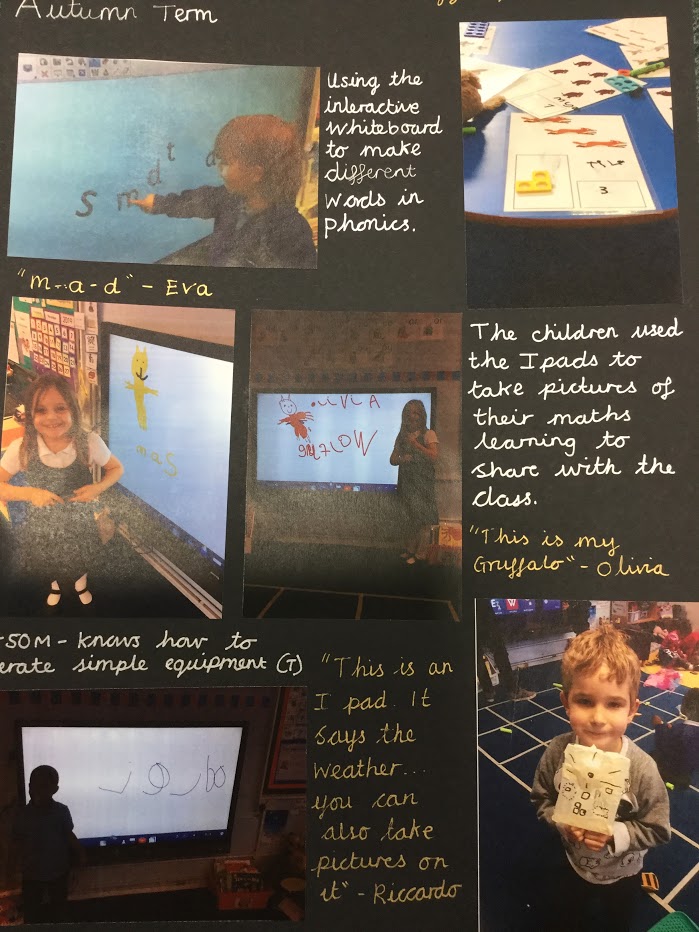 |
Intent We want all children to leave the school at the end of Year 6 with a clear understanding of computing; understanding the relevance of it in their lives, and knowing how to be safe within the world of technology. St Margaret's C of E Primary School provides:
|
|
Implementation
|
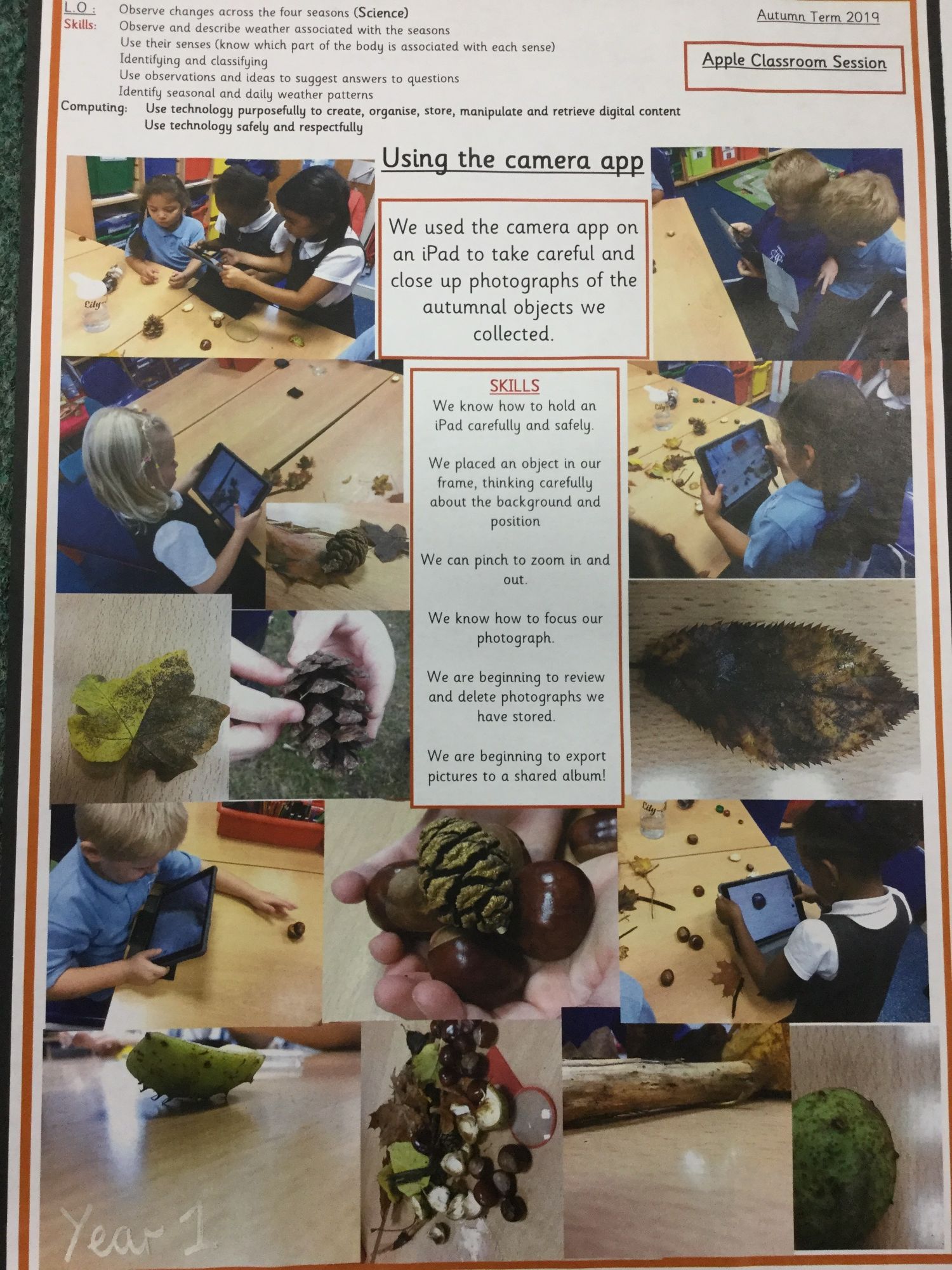 |
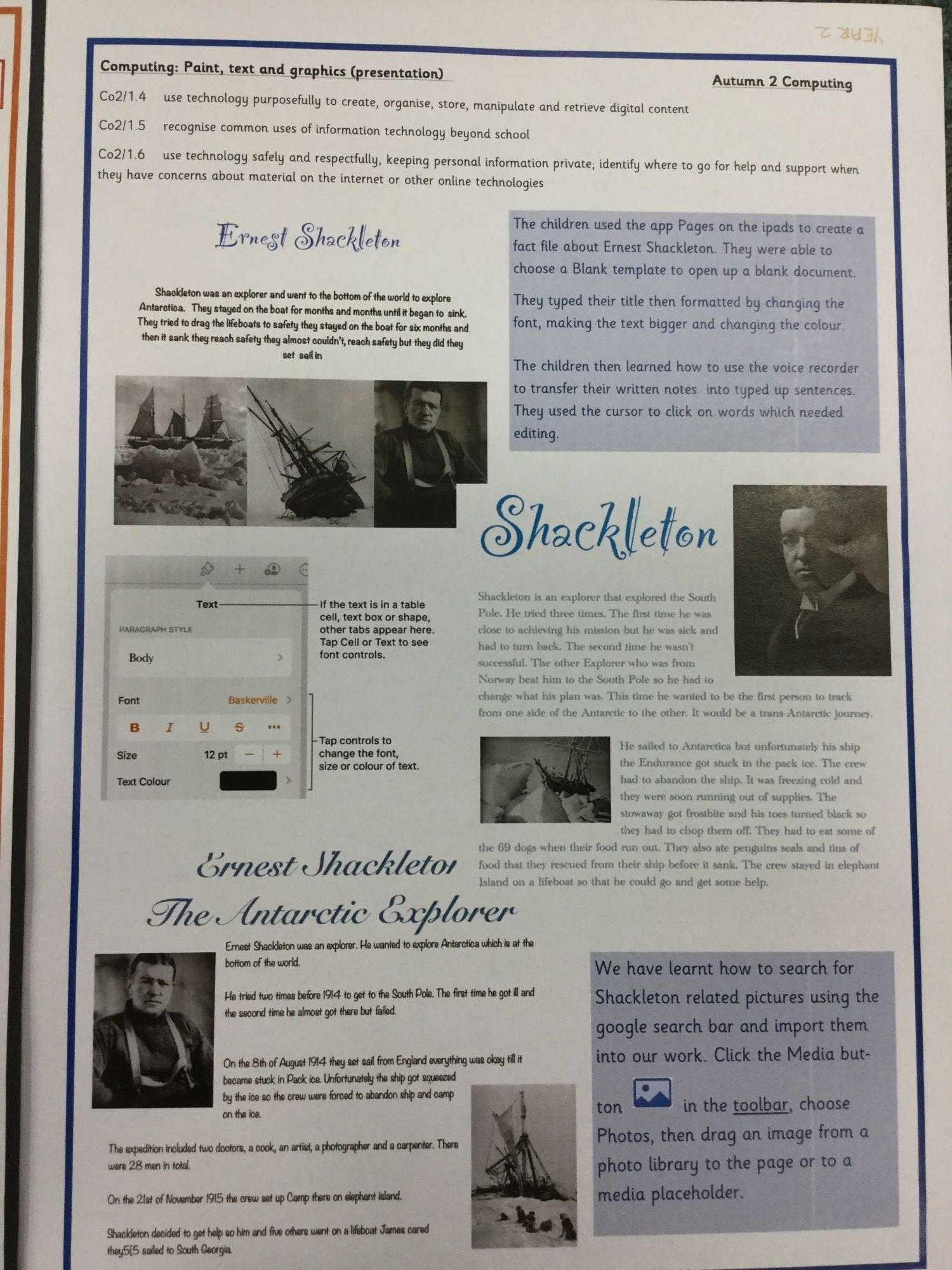 |
Impact Our discreet Computing curriculum is planned to ensure that all children are able to access and complete tasks to a high standard. Children reflect upon and evaluate their work and others. Impact is captured in End of Unit quizzes to show progression in knowledge and skills and to reflect pride. Computing skills are also taught and used in a cross curricular way, with coverage evident in varied subject areas. Children are encouraged to be aware of the knowledge and skills they gain and make connections with prior learning and across the wider curriculum. Where necessary, Computing is taught discretely. The school environment also celebrates children’s achievements in computing. |
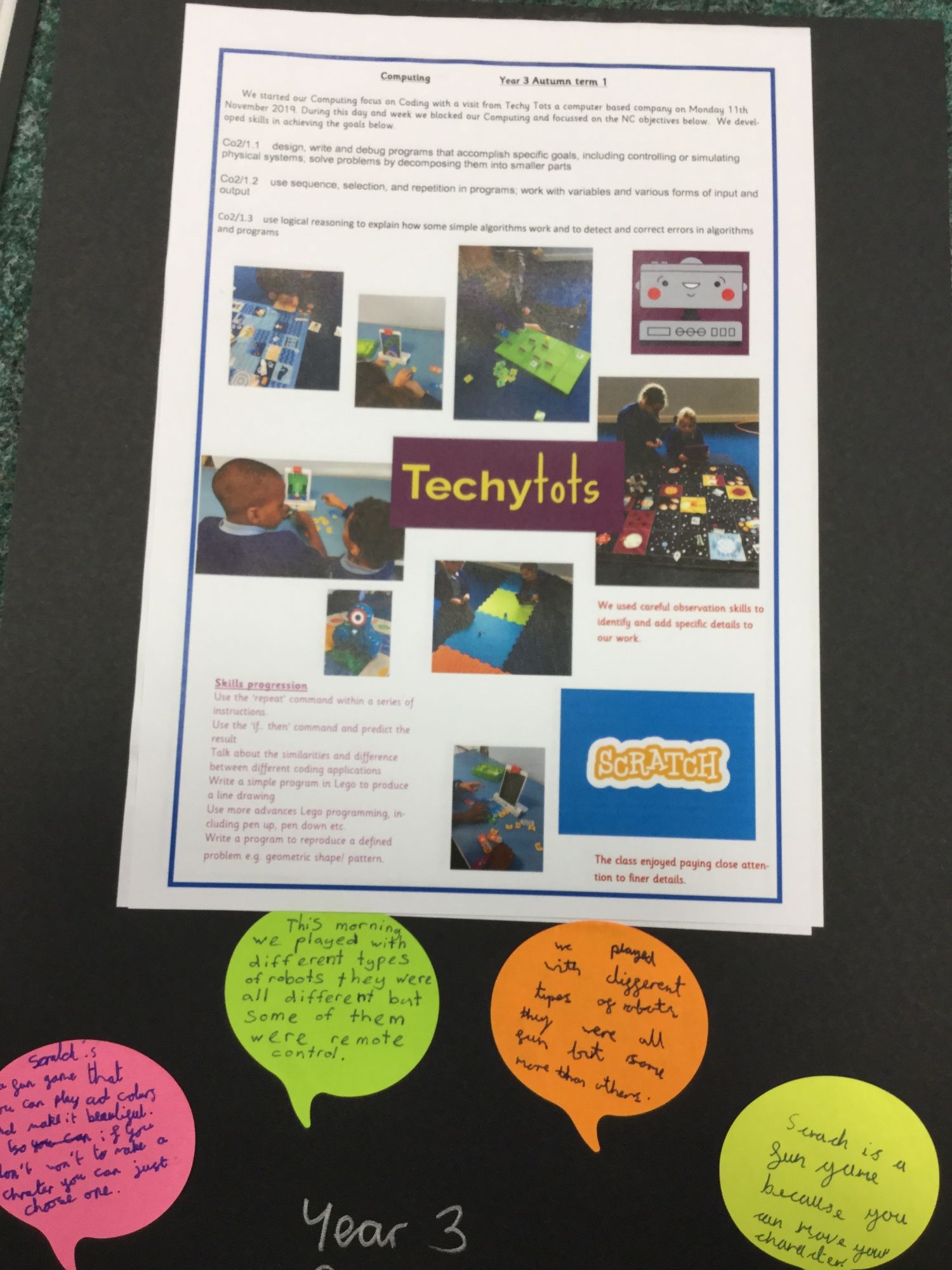
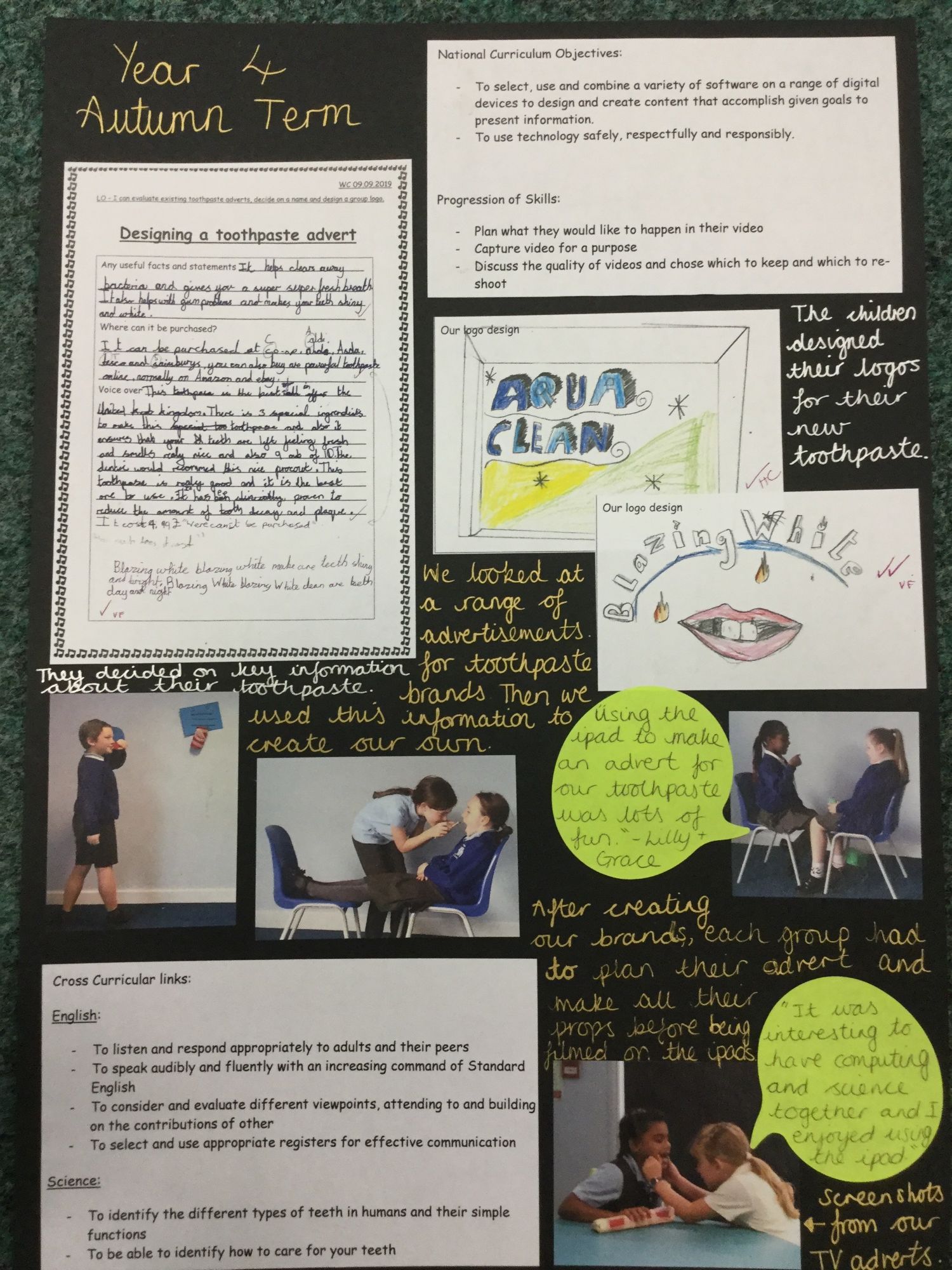
National Curriculum Guidelines for Computing
Early Years
There are seven areas of learning and development that must shape educational programmes in early years settings. All areas of learning and development are important and inter-connected.
- Communication and language
- Physical development
- Personal, social and emotional development
- Literacy
- Mathematics
- Understanding the world
- Expressive arts and design
Key Stage 1
Pupils should be taught to:
- Understand what algorithms are; how they are implemented as programs on digital devices; and that programs execute by following precise and unambiguous instructions
- Create and debug simple programs
- Use logical reasoning to predict the behaviour of simple programs
- Use technology purposefully to create, organise, store, manipulate and retrieve digital content
- Recognise common uses of information technology beyond school
- Use technology safely and respectfully, keeping personal information private; identify where to go for help and support when they have concerns about content or contact on the internet or other online technologies.
Key Stage 2
Pupils should be taught to:
- A design, write and debug programs that accomplish specific goals, including controlling or simulating physical systems; solve problems by decomposing them into smaller parts
- B use sequence, selection, and repetition in programs; work with variables and various forms of input and output
- C use logical reasoning to explain how some simple algorithms work and to detect and correct errors in algorithms and programs
- D understand computer networks including the internet; how they can provide multiple services, such as the world wide web; and the opportunities they offer for communication and collaboration
- E use search technologies effectively, appreciate how results are selected and ranked, and be discerning in evaluating digital content
- F select, use and combine a variety of software (including internet services) on a range of digital devices to design and create a range of programs, systems and content that accomplish given goals, including collecting, analysing, evaluating and presenting data and information
- G use technology safely, respectfully and responsibly; recognise acceptable/unacceptable behaviour; identify a range of ways to report concerns about content and contact.
| Year Group | Link |
|---|---|
| 1 | Click here for the Year 1 Knowledge Organiser |
| 2 | Click here for the Year 2 Knowledge Organiser |
| 3 | Click here for the Year 3 Knowledge Organiser |
| 4 | Click here for the Year 4 Knowledge Organiser |
| 5 | Click here for the Year 5 Knowledge Organiser |
| 6 | Click here for the Year 6 Knowledge Organiser |
| Click here to see the Computing Knowledge Builder. | |
| Click here to see the Computing Progression of Skills. | |
Design & Technology
Intent
At St Margaret’s Primary School our aim for the DT curriculum is for all children to develop the creative, technical and practical expertise needed to perform everyday tasks confidently.
All children, including pupils with SEND, EAL and those who are Disadvantaged, are inspired to participate successfully through an aspirational and inclusive curriculum in an increasingly technological world. We aim for all children to build and apply a repertoire of knowledge, understanding and skills in order to design and make age appropriate prototypes and products for a wide range of users. They are encouraged to critique, evaluate and test their ideas and products in a safe environment where mistakes are used as an opportunity to learn. We ensure quality first teaching takes place with reasonable adjustments to include and enable all pupils to succeed.
Implementation
At St. Margaret’s, we supplement our Design and Technology learning with the Kapow Primary schemes of work. This has supported our development of a clear curriculum overview, and progression of skills, which shows the skills that are taught within each year group and how these skills develop to ensure that attainment targets are securely met by the end of each key stage.
The Design and Technology National Curriculum outlines the three main stages of the design process: design, make and evaluate. Each stage of the design process is underpinned by technical knowledge, which encompasses the contextual, historical and technical understanding required for each strand.
Cooking and nutrition has a separate section with a focus on specific principles, skills and techniques in food, including where food comes from, diet and seasonality.
The National Curriculum organises the Design and Technology attainment targets under five strands: Design, Make, Evaluate, Technical Knowledge, Cooking and Nutrition. Through the Kapow scheme, all pupils respond to design briefs and scenarios that require consideration of the needs of others, developing their skills in six key areas:
-
Mechanisms
-
Structures
-
Textiles
-
Cooking and Nutrition
-
Electrical Systems (KS2) and
-
Digital World
At St. Margaret’s, we teach Design and Technology as a spiral curriculum, with key areas revisited with increasing complexity, allowing all children to revisit and build on their previous learning.
Lessons incorporate a range of teaching strategies to meet the needs of all learners, from independent tasks, paired and group work including practical hands-on, computer based and inventive tasks. This variety means that lessons are engaging and appeal to those with specific learning styles. We differentiate the learning in every lesson to ensure that learning can be accessed by all pupils, including those pupils with SEND, those in receipt of the Pupil Premium Grant and those with EAL. There are also opportunities to stretch and deepen pupils’ learning. We make reasonable adjustments to support all learners through our growing stock of tools, resources and design, make, evaluate project packs. Knowledge organisers for each unit support pupils in building a foundation of factual knowledge by encouraging recall of key facts and vocabulary.
Staff monitor children’s progress in Design and Technology through the use of assessments, which happen throughout each lesson, and then at the end of each unit. Pupils are assessed by taking part in a quiz, linked to the knowledge organiser specifically designed for that unit. Kapow lessons include guidance to support teachers in assessing pupils against the learning objectives so the impact of lessons can be constantly monitored.
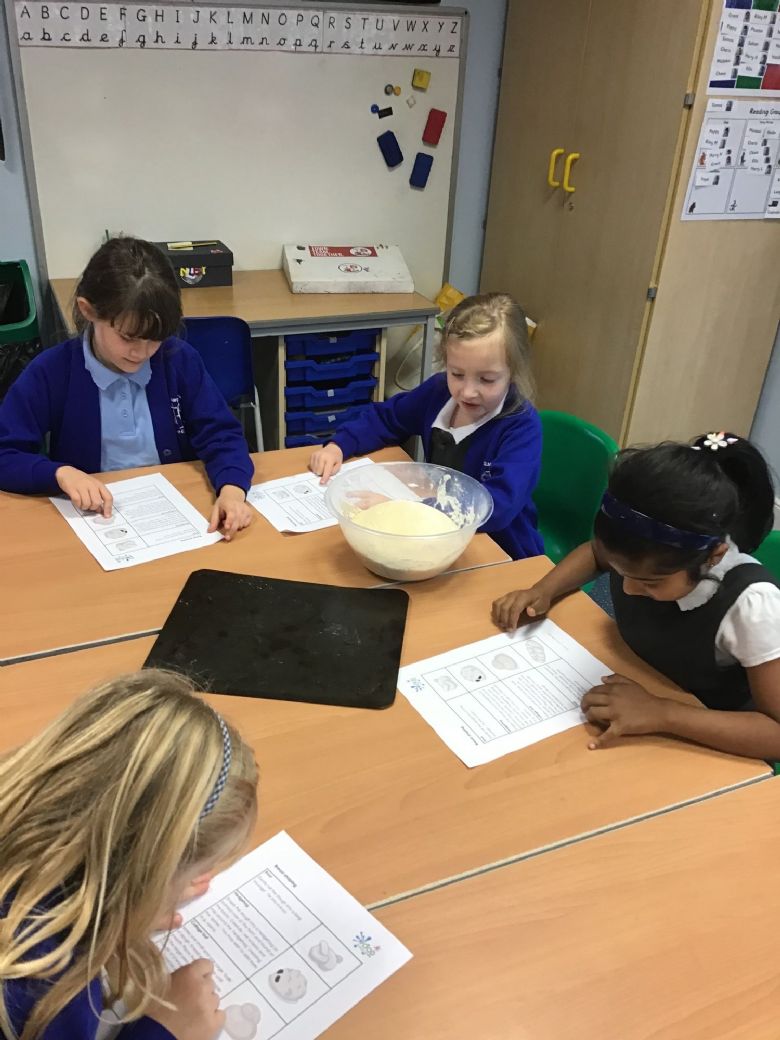 |
Impact All pupils will leave St. Margaret’s School equipped with a range of skills to enable them to succeed in their secondary education and be innovative and resourceful members of society. St Margaret’s learners will:
|
-
Understand and apply the principles of healthy eating and healthy recipes, including key processes, food groups and cooking equipment.
-
Have an appreciation for key individuals, inventions and events in history and of today, that impact our world.
-
Recognise where our decisions can impact the wider world in terms of community, social and environmental issues.
-
Self evaluate and reflect on learning at different stages and identify areas to improve.
-
Meet the end of key stage expectations outlined in the National curriculum expectations for Design and Technology.
| Year Group | Link |
|---|---|
| R | Click here for the Year R Knowledge Organiser |
| 1 | Click here for the Year 1 Knowledge Organiser |
| 2 | Click here for the Year 2 Knowledge Organiser |
| 3 | Click here for the Year 3 Knowledge Organiser |
| 4 | Click here for the Year 4 Knowledge Organiser |
| 5 | Click here for the Year 5 Knowledge Organiser |
| 6 | Click here for the Year 6 Knowledge Organiser |
| Click here for the Design & Technology Knowledge Builder. | |
| Click here for the Design & Technology Progression of Skills. | |
Geography
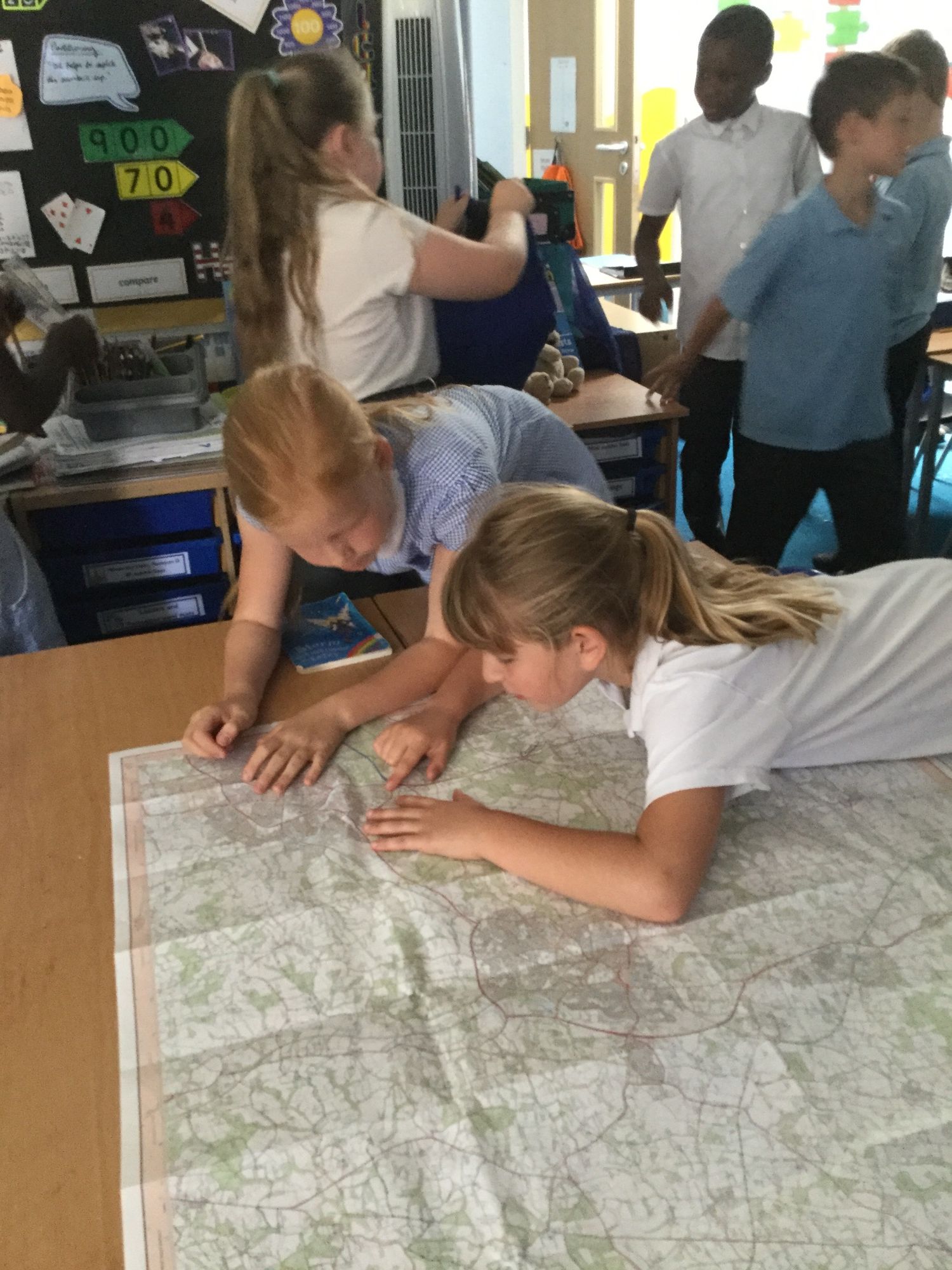 |
Intent We at St Margaret’s CE Primary want the children to leave the school at the end of Year 6 with a clear understanding of Geography, understanding the relevance of it in their lives and inspire children to want to know more about the world around them. Through our sequenced learning we aim to give children the opportunity and motivation to acquire new knowledge and skills to aid future learning and employment. |
|
Implementation In the EYFS the children are given opportunities to make sense of their physical world and their community by exploring, observing, and finding out about people, places and their personal environment around them. |
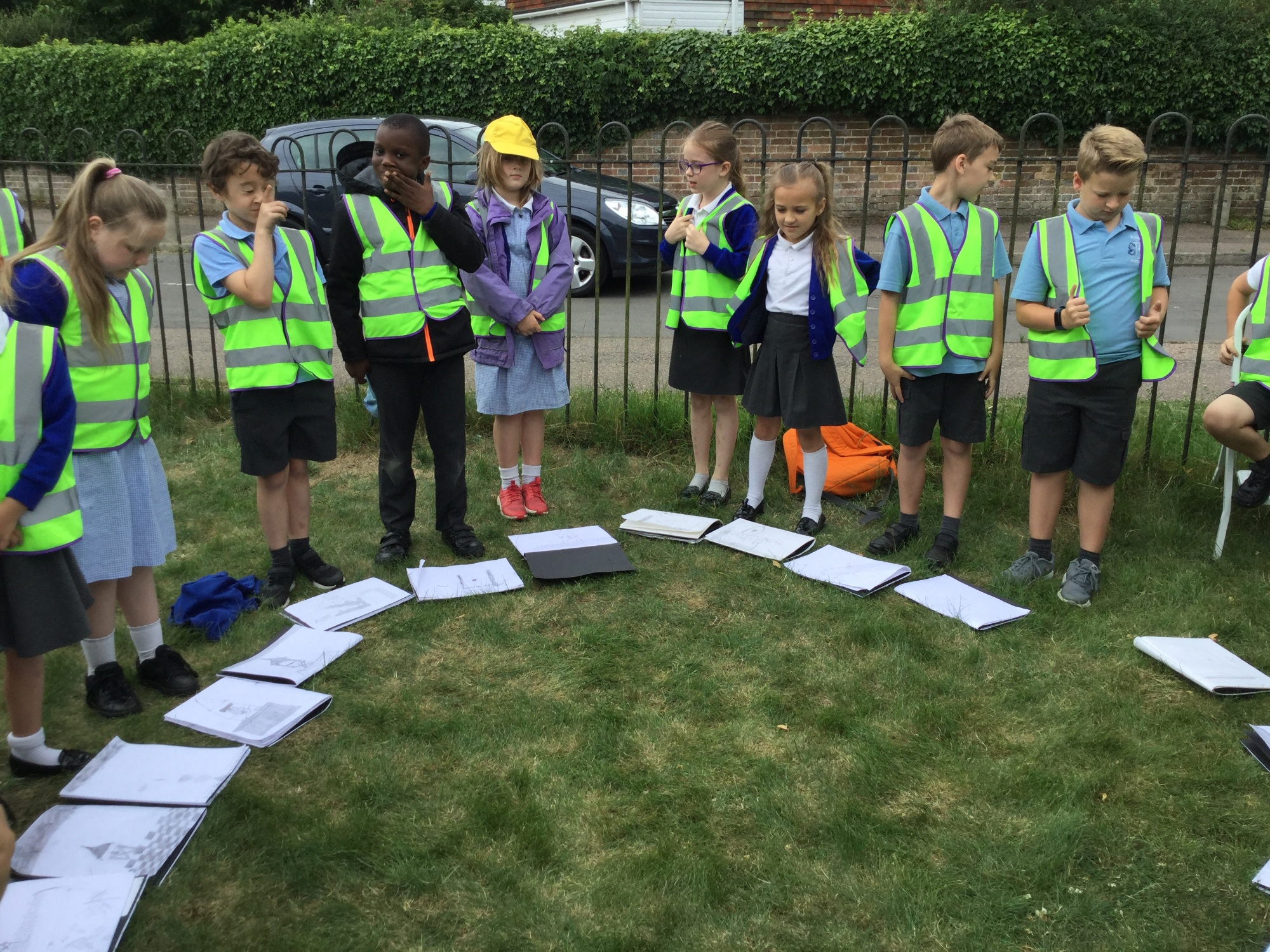 |
Throughout both Key Stage 1 and Key Stage 2, children acquire knowledge of locational and place knowledge and human and physical geography. This is taught coherently through the four areas of skills: Geographical enquiry, Communicating in different ways, Fieldwork and Map skills.
The children begin to develop a geographical vocabulary by learning about where they live, as well as one other small area of the United Kingdom and a small area in a contrasting non-European country. They also learn about weather patterns in the United Kingdom and hot and cold areas of the world. They use ICT, world maps, atlases and globes, simple compass directions, aerial photographs and plans, as well as simple fieldwork and observational skills.
In Key Stage 2 the learning becomes more focussed but still centrally based around the four key areas of knowledge and skills. Locational knowledge examines latitude, longitude and time zones. Children will use maps to focus on Europe, North and South America, concentrating on regions, key physical / human characteristics, countries, and major cities. They will also work on locating the counties and cities of the United Kingdom, and start to explore their human and physical characteristics. Children will examine geographical similarities and differences by comparing the geography of a region of the United Kingdom with a region in a European country, and with a region in either North or South America. This is part of the place knowledge aspect of the curriculum. For human and physical geography children will be taught to describe and understand key aspects of geography, for example: climate zones, rivers, mountains, volcanoes, earthquakes, the water cycle, types of settlement, economic activity and the distribution of natural resources.
Our enquiry based learning approach aims to engage and motivate all children through its accessibility, inclusivity and relevance to their lives. Using effective differentiation in planning to suit the needs of all children, and high quality teaching aims to enable our curriculum to set high expectations of all learners without a ceiling.
Our implementation of the geography curriculum is supported by ensuring lessons are well adapted for all learners. A range of adaptations to aid learning are used such as, vocabulary mats and using bespoke questioning, to allow challenge yet accessibility to all learners across our curriculum.
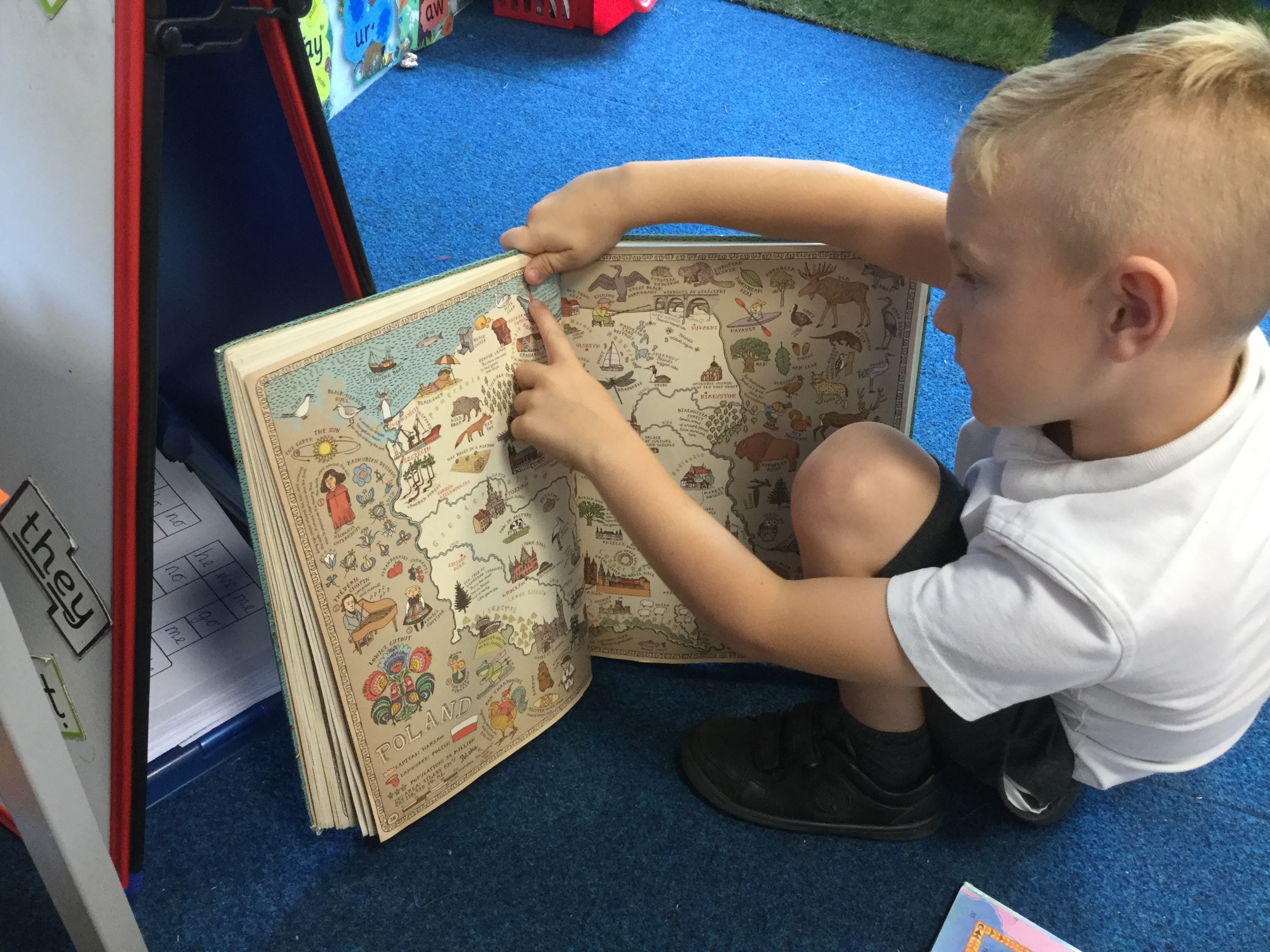 |
Impact Our Geography curriculum ensures that at the end of Key Stage 2 children have a bank of transferable skills such as research, observation, measurement, recording and presentation which aid future learning and employment. Alongside these transferable skills the children will obtain knowledge from a variety of focus are as. |
To download a copy of the Geography Knowledge Builder, please click here.
To download a copy of the Geography Progression of Skills, please click here.
History
Primary National Curriculum for History 2014“A high-quality history education will help pupils gain a coherent knowledge and understanding of Britain’s past and that of the wider world. It should inspire pupils’ curiosity to know more about the past. Teaching should equip pupils to ask perceptive questions, think critically, weigh evidence, sift arguments, and develop perspective and judgement. History helps pupils to understand the complexity of people’s lives, the process of change, the diversity of societies and relationships between different groups, as well as their own identity and the challenges of their time.” History Curriculum Statement:We believe that History is an exciting and engaging part of our school’s curriculum and that ‘a high quality history education will help our pupils gain a coherent knowledge and understanding about Britain’s past and that of the wider world’. At St Margaret’s, we promote the learning of History through cross-curricular activities and an enrichment programme of visits, visitors and workshops, designed to awaken and inspire our pupils’ inquisitiveness about the past. Through the study of History, pupils at St Margaret’s will also develop the key skills of enquiring and posing questions, thinking critically, considering evidence and evaluating arguments. We hope that these skills will support pupils to reflect on the constant process of historical change and the diverse nature of societies and relationships, equipping them as global citizens to face the challenges of their lifetime. |
|
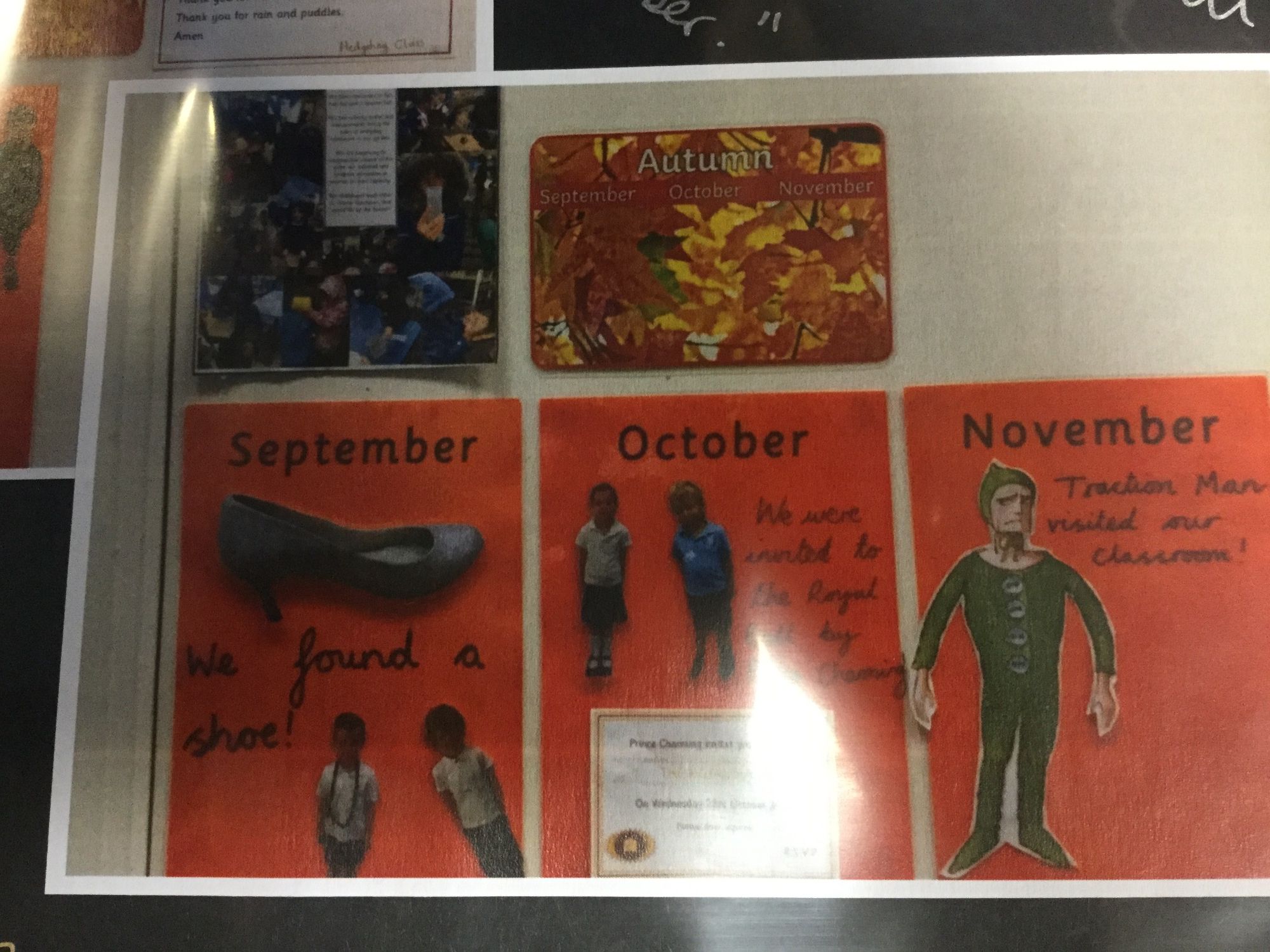 |
Intent With these aspirations, our intent for the History curriculum is:
Children in the Foundation Stage are taught the historical elements of the Foundation Stage document through the Early Years Curriculum: Understanding the World. |
|
Implementation At St Margaret’s, teachers bring our rich history curriculum to life and engage children through a range of exciting topics and a variety of stimuli, including key texts, studies of the local area, historical artifacts and events, theatre workshops and school trips. As a staff, we maintain strong links to the National Curriculum and incorporate an enquiry-based approach to all children’s learning, including those with SEND, EAL and those who are Disadvantaged, about key historical events and people. We develop our Medium Term Plans drawing on key historical themes in the termly topics, making links with other subjects wherever possible, including: Art, Science, RE, English and Geography. Links are made to termly topics and other curriculum subjects where appropriate. Long-term plans identify individual historical units taught across the year group phases. A planned progression of knowledge and skills is built into the history curriculum. This means that all children are increasingly challenged as they move through the school. Chronology is woven into our curriculum and is revisited in each topic to give children a clear understanding of time and the order of key historical events. Children’s work is celebrated through high quality displays and assemblies. The local area is also fully utilised to achieve the desired outcomes. |
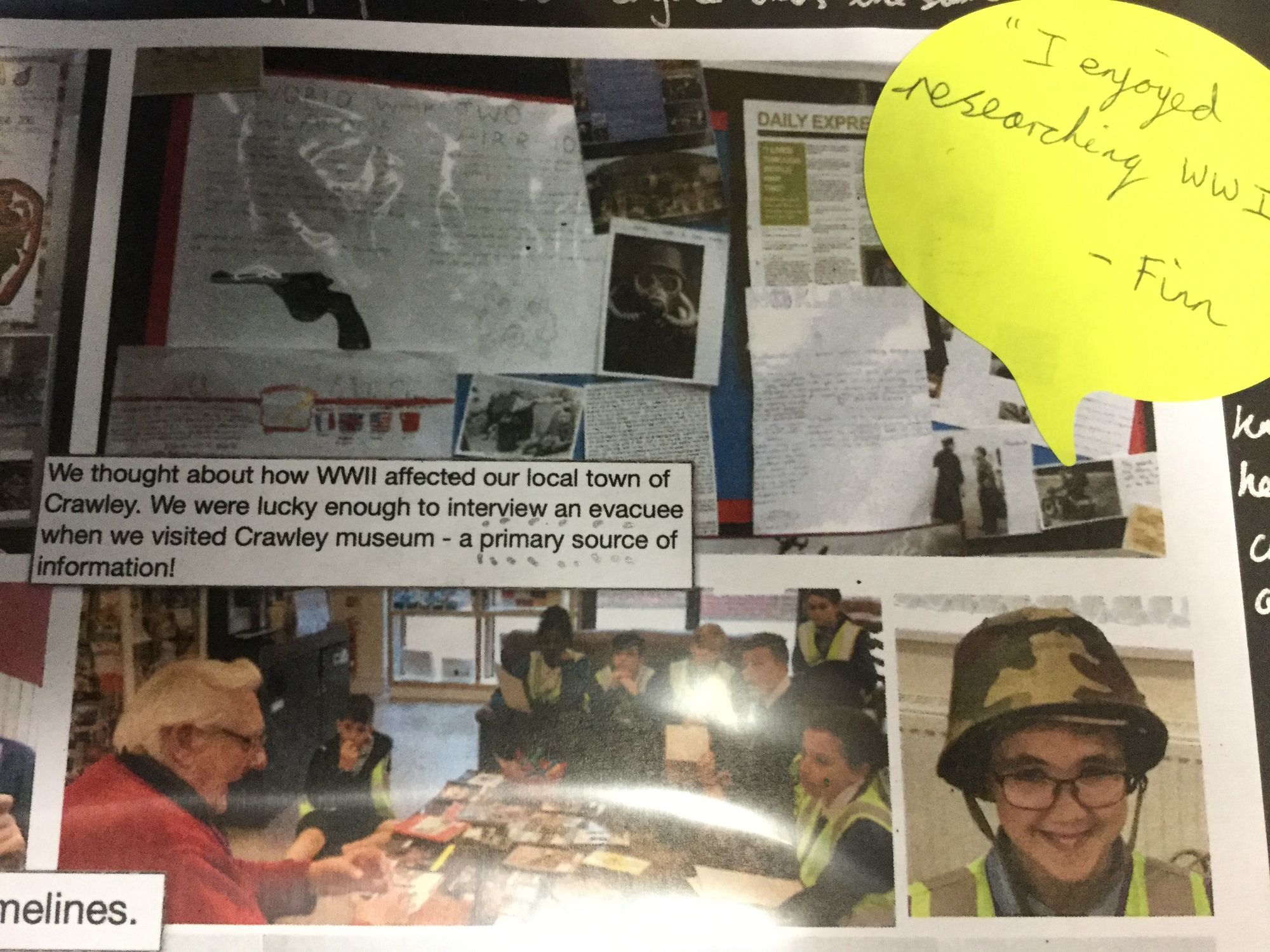 |
To download a copy of the History Knowledge Builder, please click here.
To download a copy of the History Progression of Skills, please click here.
Modern Foreign Languages - French
Intent
We at St Margaret’s CE Primary want the children to leave the school at the end of Year 6 with a curiosity and understanding of languages within the world. They will build upon previous knowledge and skills and be able to express their ideas in thoughts within listening, speaking, reading and writing to communicate to others. They will have a desire to communicate with native speakers.
In Lower KS2, children acquire basic skills and understanding of French with a strong emphasis placed on developing their Speaking and Listening skills. These will be embedded and further developed in Upper KS2, alongside Reading and Writing, gradually progressing onto more complex language concepts and greater learner autonomy.
Implementation
The children undertake a balanced programme that takes account of abilities, aptitudes and physical, emotional and intellectual development. Through French, the children learn a range of skills, vocabulary and knowledge to prepare them for KS3 ready for their next learning journey.
Lessons are sequenced so that prior learning is considered and opportunities for revision of language and grammar are built in.
Our lessons and resources help children to build upon prior knowledge alongside the introduction of new skills. A series of lessons are suggested, providing structure and context as well as offering an insight into the culture of French-speaking countries and communities. The introduction and revision of key vocabulary and grammatical structures is built into each lesson. This vocabulary is then included in display materials and additional resources so that children have opportunities to repeat and revise their learning. PlanIt French has been designed by a language specialist teaching team, including French native speakers, so that teachers feel confident and supported. All of our lesson packs contain adult guidance, accurate language subject knowledge and accompanying audio materials.
Impact
Our French curriculum ensures that at the end of Key Stage 2 children have a bank of transferable knowledge and skills ready for moving on to KS3.
Using the full range of resources, videos, PowerPoints, sound files, word mats, including display materials this will increase the profile of languages across school. The learning environment will be consistent with key French vocabulary displayed, spoken and used by all learners. Whole-school and parental engagement will improve through the use of language-specific home learning tasks and opportunities suggested in lessons and overviews for wider learning. We want to ensure that French is loved by teachers and pupils across school, therefore encouraging them to embark on further language studies. Impact can also be measured through key questioning skills built into lessons, child-led assessment such as success criteria grids, impact catchers, jigsaw targets and KWL grids and summative assessments aimed at targeting next steps in learning.
Music
Intention
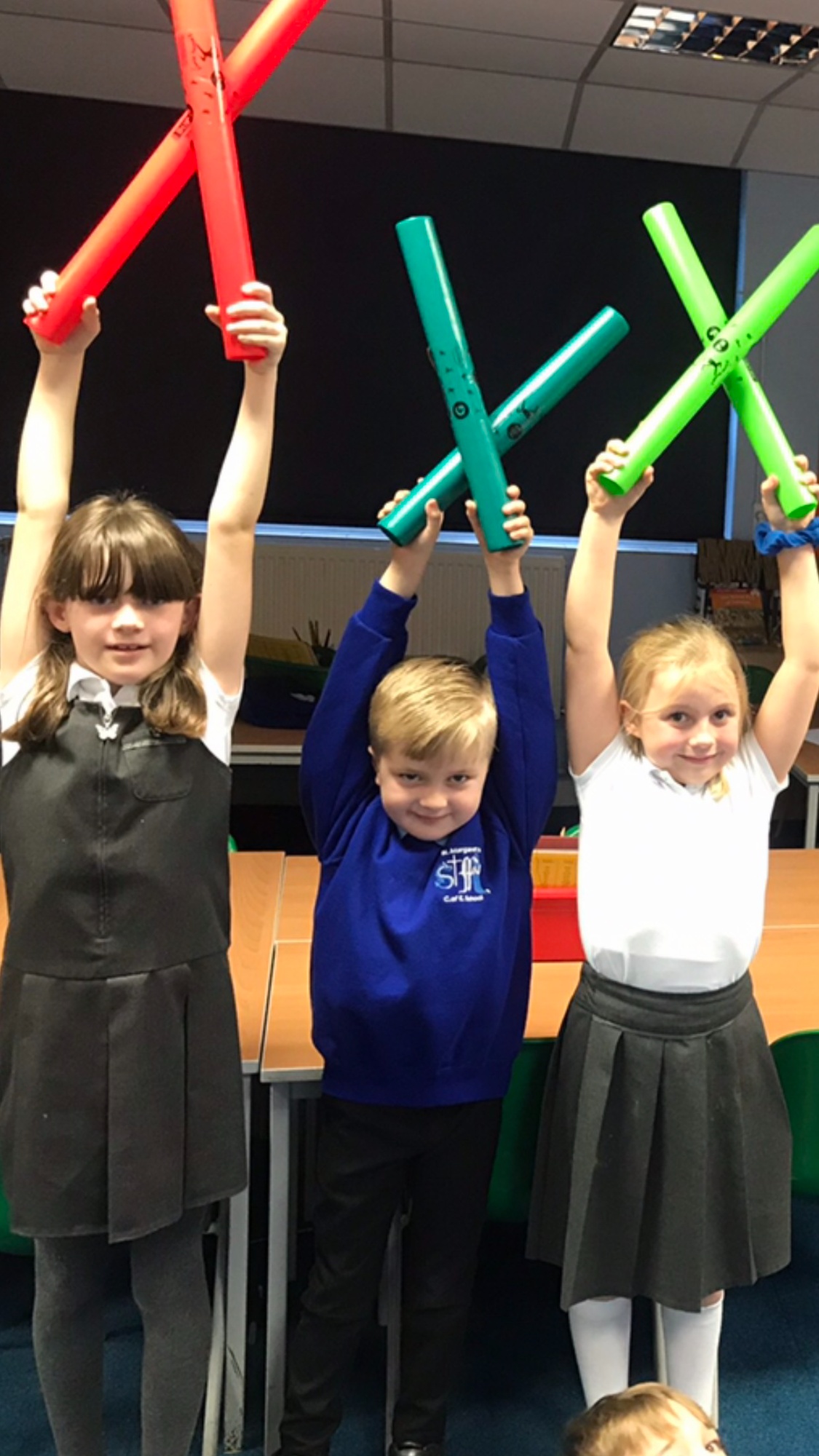 |
At St Margaret’s we want Music lessons to be fun and inspiring, engaging the children with songs, lyrics and movement. We want the children to feel able, reflective and expressive, developing their own appreciation of music with the opportunities we provide as a school. We intend for children to;
|
We intend to develop a curiosity for the subject, as well as an understanding and acceptance of the validity and importance of all types of music. We are committed to ensuring children understand the value and importance of music in the wider community, and are able to use their musical skills, knowledge, and experiences to involve themselves in music, in a variety of different contexts.
Implementation
| All children in KS1 and 2 are given the opportunity to learn to play a different musical instrument each year and are also given opportunities to enrol in individual instrumental lessons with visiting peripatetic staff. As well as being taught by their teacher, Music lessons are also taught by a music specialist every other week. | 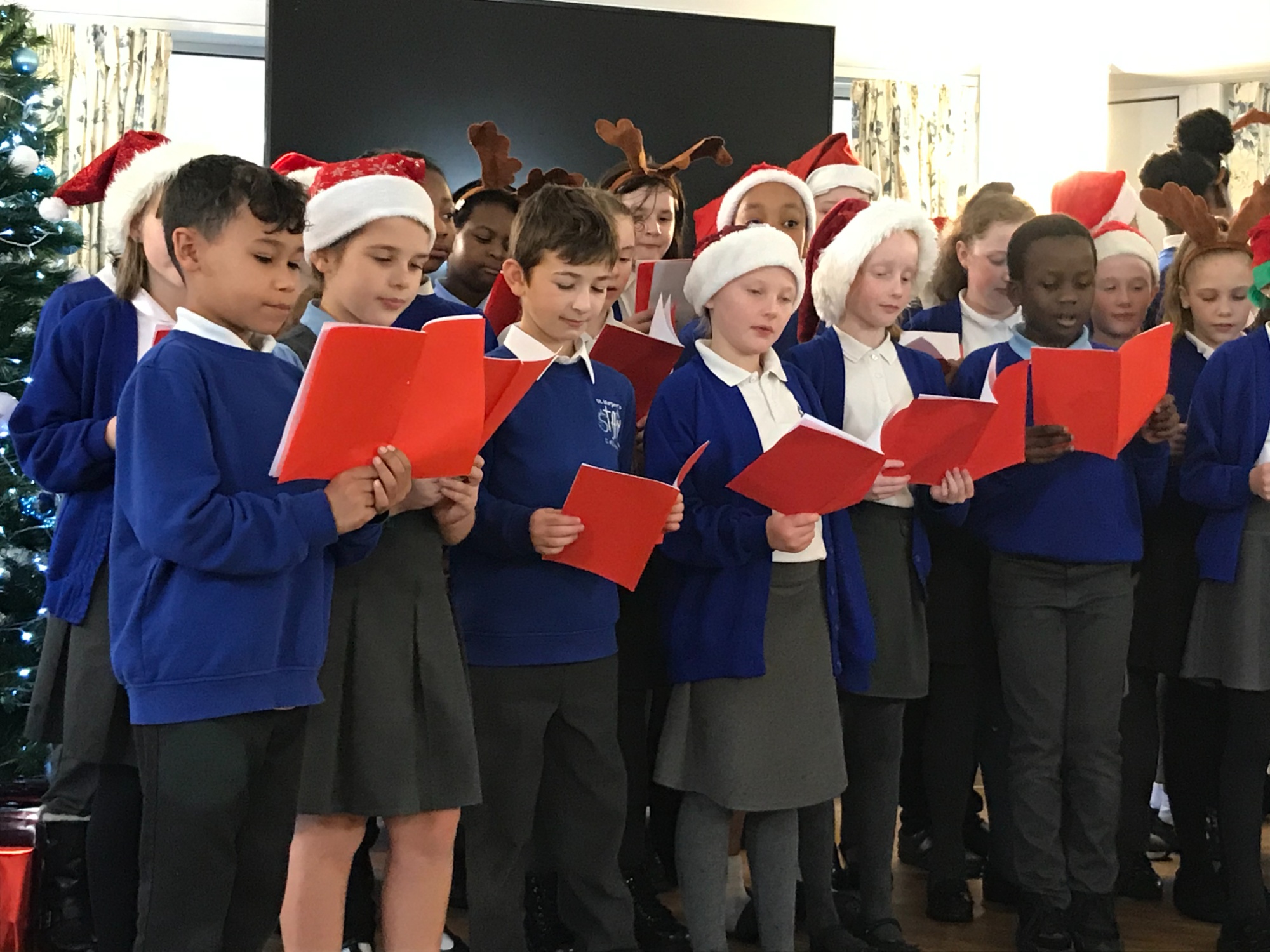 |
Musical opportunities across the whole school include weekly class music lessons, Hymn practice during singing worship, visiting musicians and performance ensembles. Our children also participate in Christmas performances and events, end of year concerts, and are given other opportunities to perform to the school and the wider community. All Upper KS2 children are invited to be part of the Young Voices
event at the O2 in London. The school has popular before and after school Music Clubs which are keenly attended.
Opportunities for cross-curricular links are taken, wherever possible, to link music with other subject areas and learning themes. Through our music curriculum, children learn to sing together, appreciate and analyse a variety of musical pieces from throughout the eras and the world, play musical instruments with their peers, identify musical features in pieces as well as compose, practise and perform their own pieces.
At St. Margaret’s Primary School, we use the ’Sing up’ scheme of work. A steady progression plan has been built into Sing up, both within each year (term to term) and from one year to the next, ensuring consistent musical development. By using Sing up as the basis of a scheme of work, we can ensure that we are fulfilling the aims for musical learning stated in the National Curriculum as well as the Model Music Curriculum. The curriculum is clearly mapped in Sing up, ensuring coverage. Sing up also uses singing as the Golden thread that weaves through its units. We embrace this golden ‘singing’ thread across the whole school both in and outside of Music lessons.
Sing up provides a classroom-based, participatory and inclusive approach to music learning. Throughout the scheme, children are actively involved in using and developing their singing voices, using body percussion and whole body actions, and learn to handle and play classroom instruments effectively to create and express their own and others’ music. Through a range of whole class, group and individual activities, children have opportunities to explore sounds, listen actively, compose and perform.
Impact
All pupils benefit from a high-quality music education which engages and inspires them to develop a love of music and develop their talent as musicians. We are proud to offer our children tuition on six different instruments during their time at St Margaret's school as well as provide them with opportunities to play a variety of percussion instruments. These opportunities increase their skill as Musicians as well as their enjoyment of Music, their self-confidence, their creativity and their sense of achievement.
As pupils progress, they develop a growing musical vocabulary that allows them to critically engage with music. Teaching and learning of music is a reflective process for the children at our school and they are given the opportunities to assess themselves and their peers in lessons. The children also celebrate their success and skills with their peers and wider audiences through sharing opportunities and performances.
The Sing up scheme enables children to develop an understanding of culture and history as well as ethnicities from across the world. Our children are able to enjoy music as listeners, composers and performers and are given the opportunity to
discuss and share their own thoughts, opinions and ideas. They are taught to acknowledge and respect that these opinions may vary. They can dissect music and comprehend its parts. They can sing with confidence and enjoyment. Children are given opportunities beyond the National Curriculum to further support their experience and enjoyment of Music. These include listening to music and joining in with singing at different times of the day, listening to visitors with musical talent, visiting concerts, clubs, peripatetic lessons and taking part in school productions.
To download a copy of the Music Knowledge Builder, please click here.
Religious Education (R,E,)
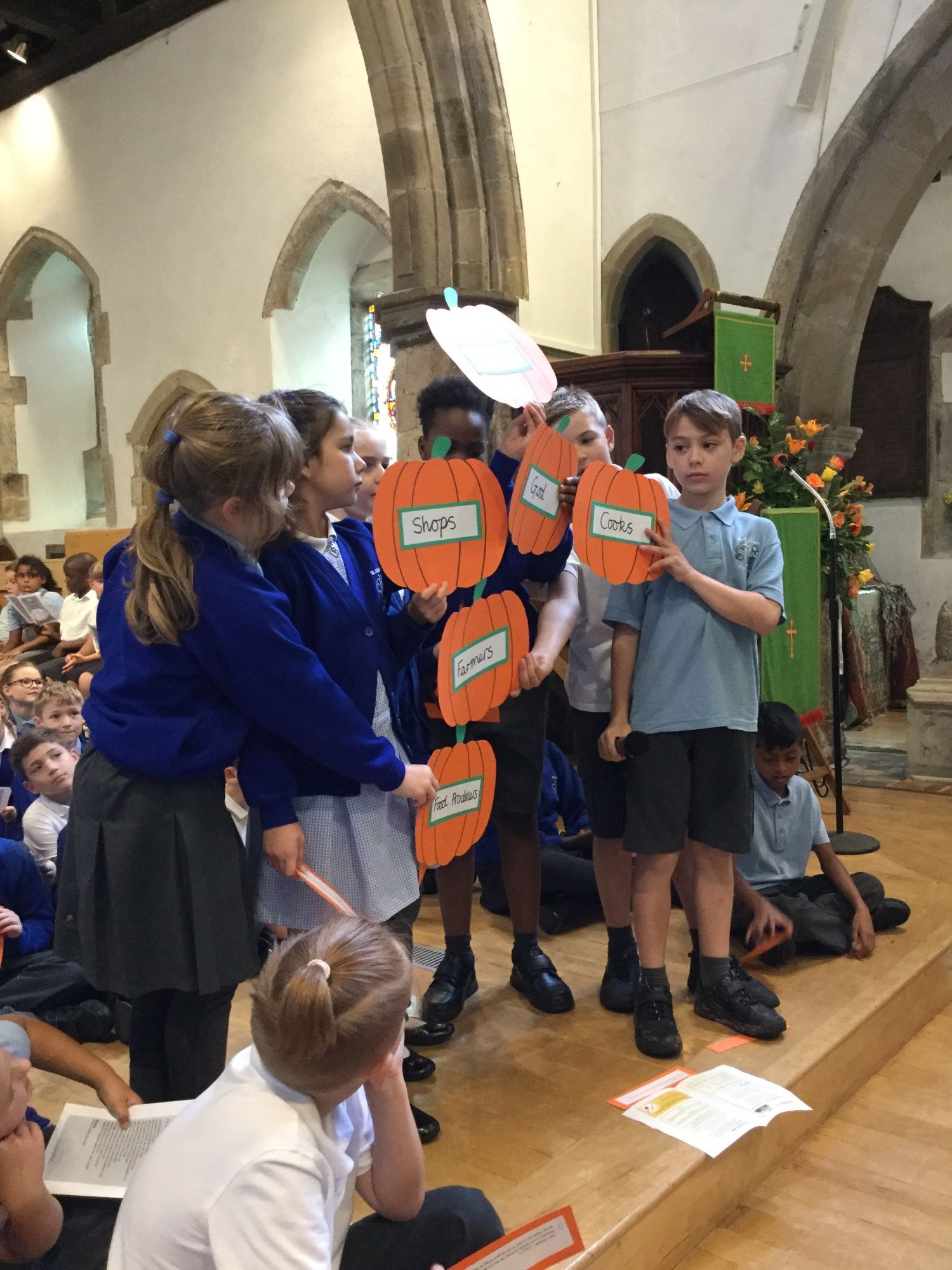 |
Intent Religious Education is a core subject at St Margaret’s Church of England Primary School and is at the centre of our ethos. As our school’s Bible verse John 10:10 says, we want our children to ‘live life in all its fullness’. We believe that all children should be enabled to fulfill their potential at St Margaret’s and have high aspirations for themselves in R.E. Every teacher has high expectations of all pupils and knows that quality first teaching is of the utmost importance in R.E, as it is across all curriculum areas. To ensure good progress for all children, teachers will make reasonable adjustments to their teaching and scaffold learning for all groups of learners. At St Margaret’s, we believe that R.E. plays an important role in preparing pupils for adult life and we endeavour to equip children with the knowledge and skills they need to become responsible citizens; who can make reasoned, informed and positive judgements on religious and moral issues. It is our wish to help them shape their worldview, as well as teaching them to respect the worldviews of others around them. |
|
Implementation Religious Education is taught through weekly lessons in each year group. As a school, we use the resource ‘Understanding Christianity’ which has been developed by The Church of England Education Project. This resource aims “to help all teachers support pupils in developing their own thinking and their understanding of Christianity, as a contribution to their understanding of the world and their own experience within it” (The Church of England Education Office, 2016). We also use resources developed by the Diocese of Guildford to support our teaching of different faiths, beliefs and worldviews.
Within the teaching of all faiths, we ensure that learning is accessible for all groups of learners through adaptive teaching and strategies such as vocabulary mats, structured sentence starters, spiral learning and making explicit links to prior learning. |
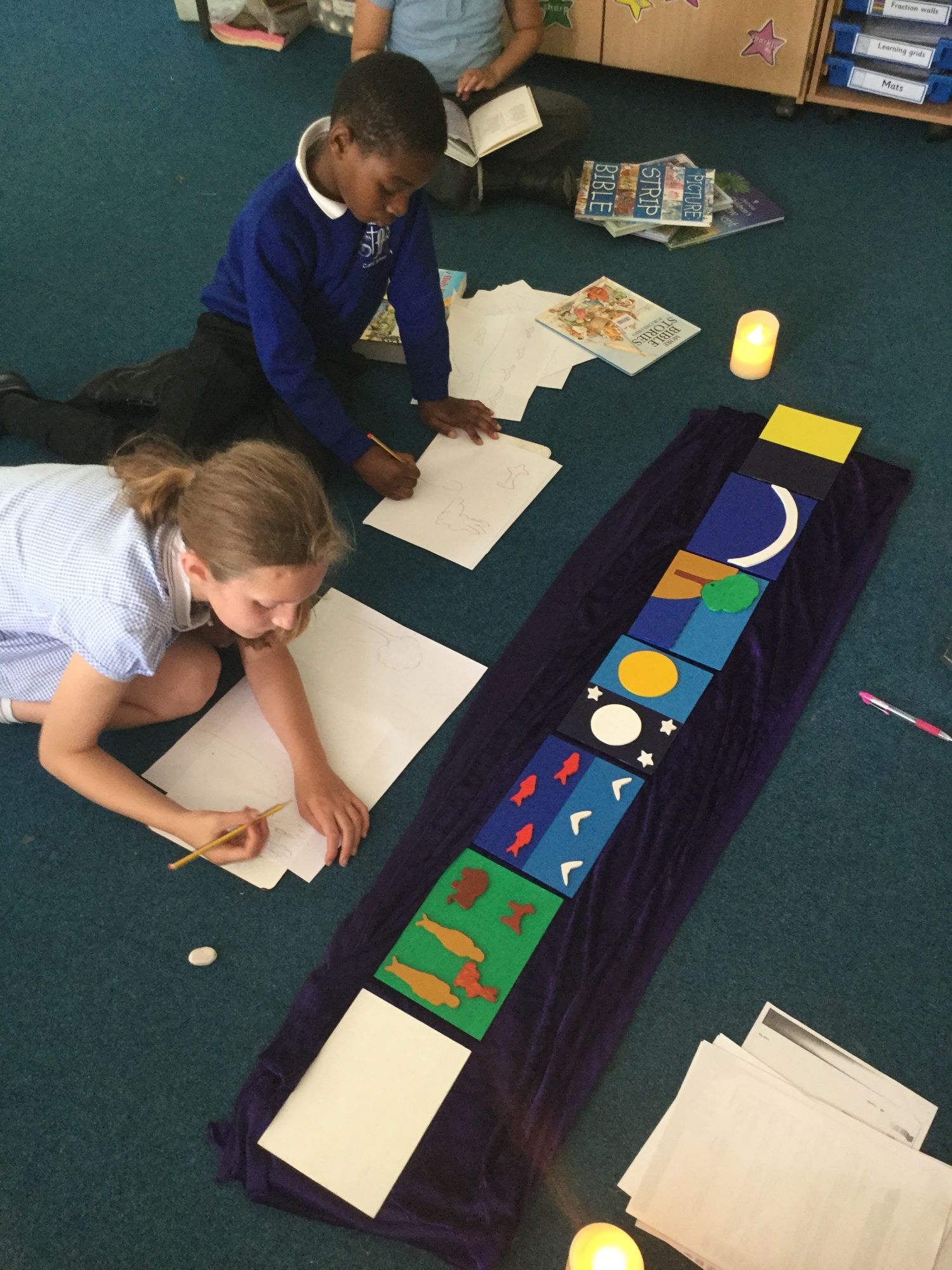 |
Impact During their time at St Margaret’s, our children’s knowledge of Christianity and other faiths is built up and contributes to their ability to personally reflect on their own thoughts and beliefs surrounding their worldview. They are also able to build resilience and learn to respect other beliefs and points of view. These are all vital skills for the children, as we live in a diverse society. Most importantly, children learn to understand and value the Christian values of truth and diversity, in order to be able to make positive moral judgements, both now and in the future. Taken from Diocese of Guildford: ‘RE in church schools should enable the children to receive the National Society’s Statement of Entitlement (2016), which outlines that RE in Church schools aims to:
|
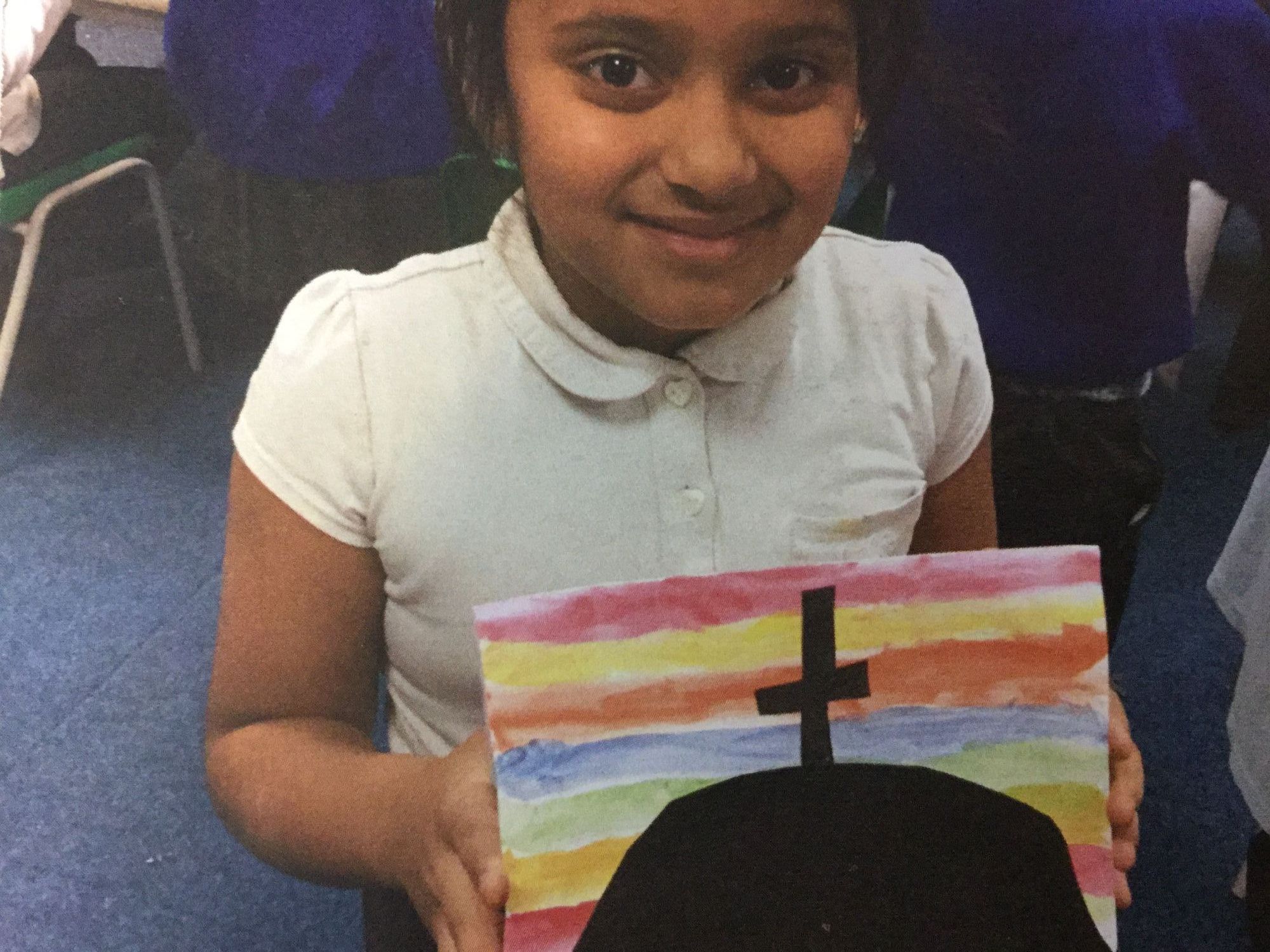 |
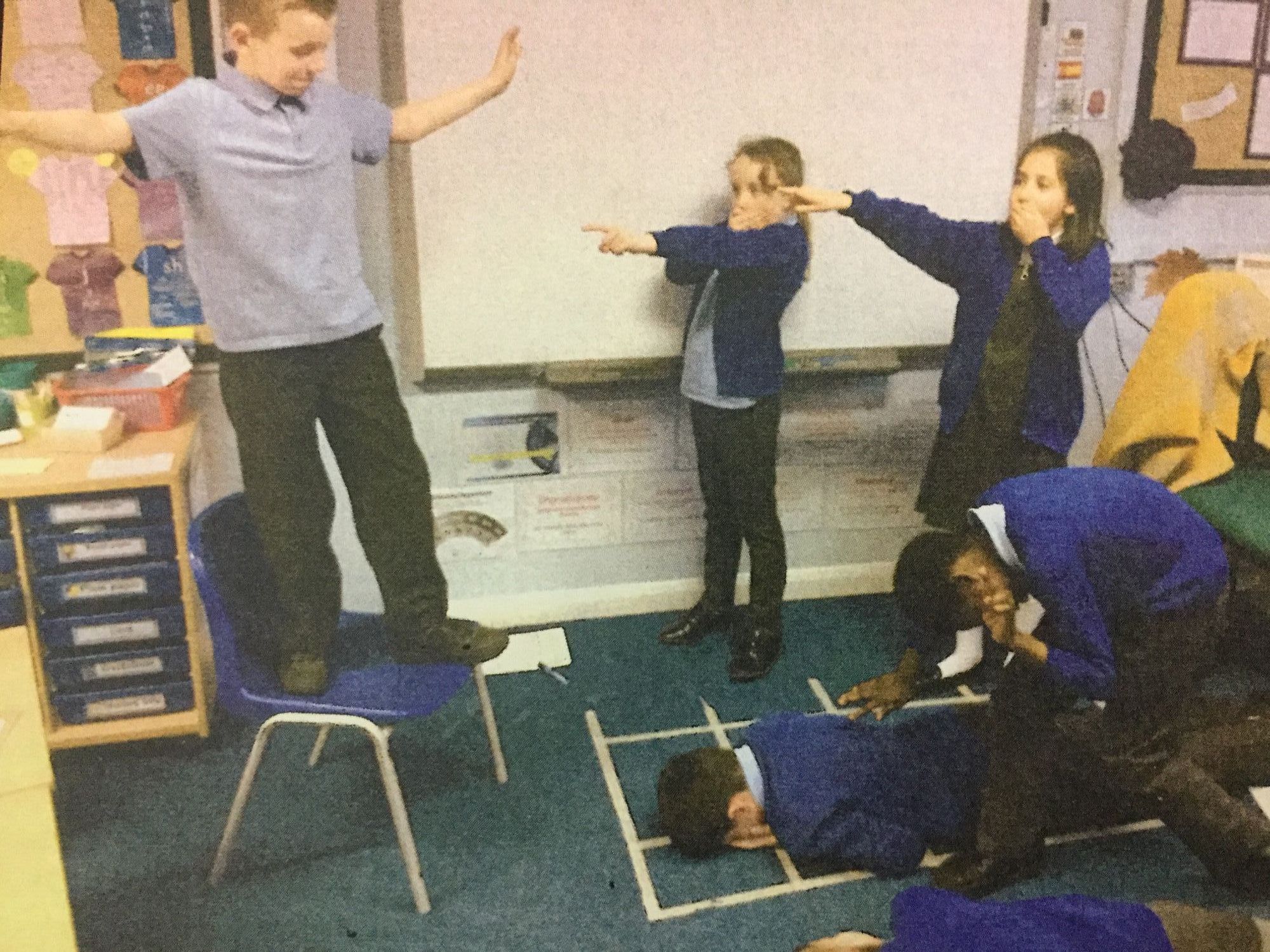 |
To download a copy of the RE Knowledge Builder, please click here.
To download a copy of RE - Other Faiths Coverage and Progression, please click here.
Physical Education (P.E.)
Intent
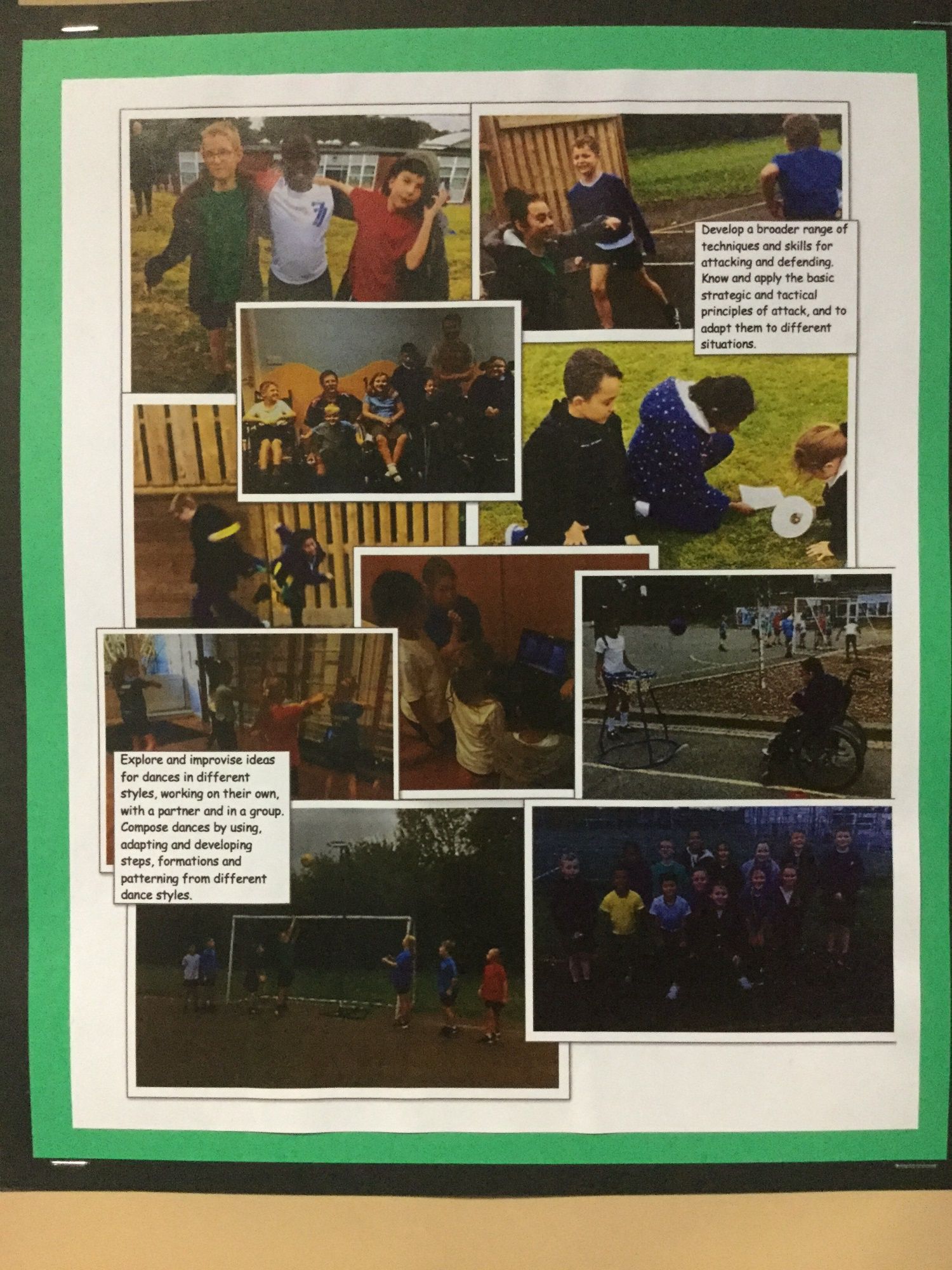 |
At St Margaret’s we aim to inspire all children to succeed and excel in a broad range of physical activities. We strive to support children to understand that PE and sport are an important part of a healthy, active lifestyle and to ensure they are physically active for sixty minutes a day. All activities are planned with a skilled-based approach ensuring pupils take part in PE and sport, including competitive sport and embed values such as leadership, fairness and respect. |
Implementation
At St Margaret’s we pride ourselves in engaging all pupils and work closely with our Rainbow Centre to ensure we cater for the needs of all of our pupils.
|
Numerous opportunities are provided for children to take part in a range of competitive, creative and challenge-type activities, both as individuals and as part of a team or group, in this school, and in a wide range of inter school competitions. Pupils participate in Festivals and experience sessions held at different senior schools and club venues throughout the town. We aim to embed core values such as fairness and respect and a love of PE and sport, which they will maintain throughout their lives. |
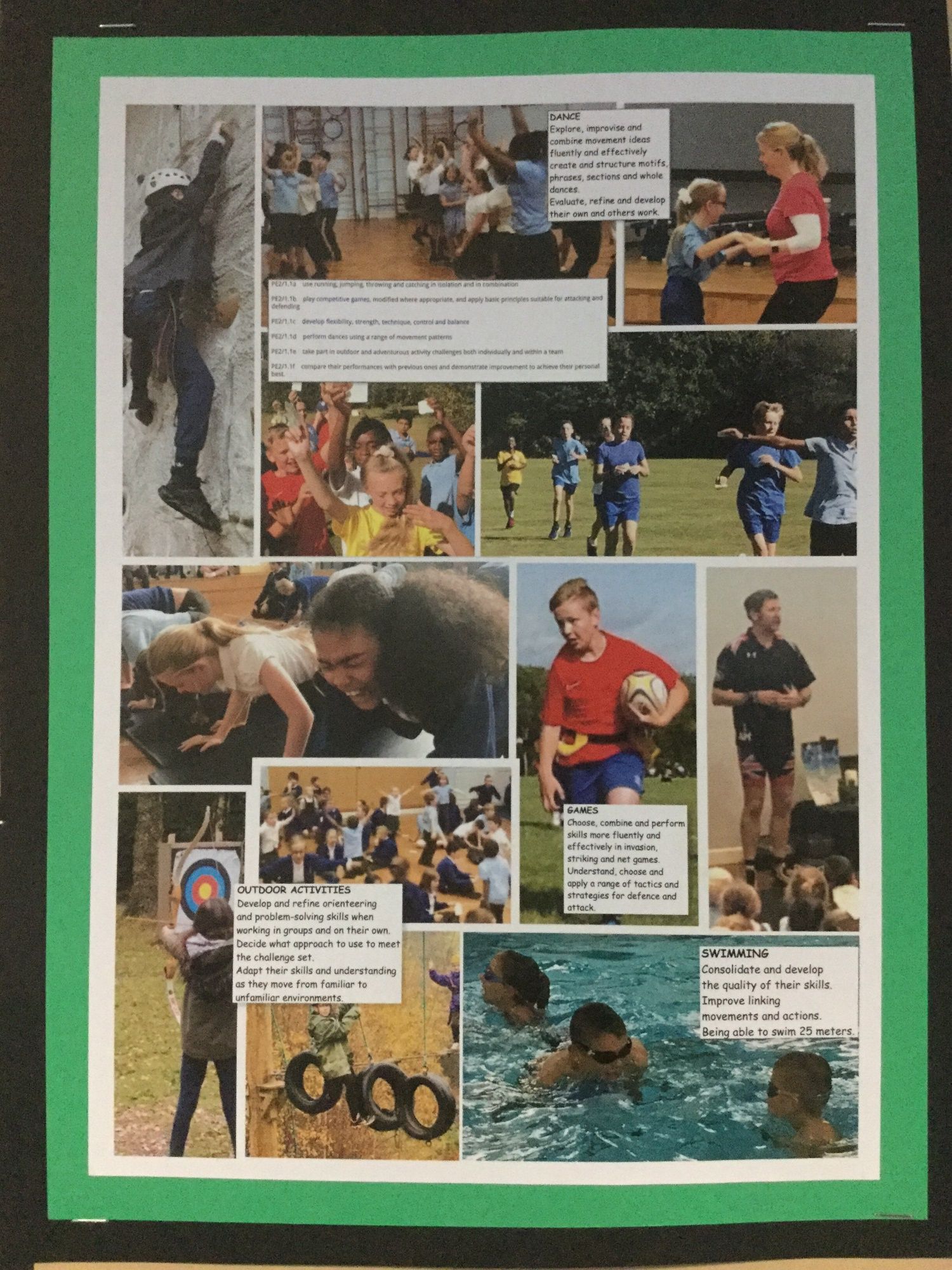 |
The PE curriculum is planned covering the skills and knowledge/content themes from the National Curriculum for Key Stage 1 and 2 and the EYFS for the Foundation Stage.
In the Early Years, PE is taught through dance, gymnastics and multi-skills. In Key Stage 1, children build on these skills and develop and apply to small sided games. In Key Stage 2 the core skills are developed and applied in games, gymnastics and dance.
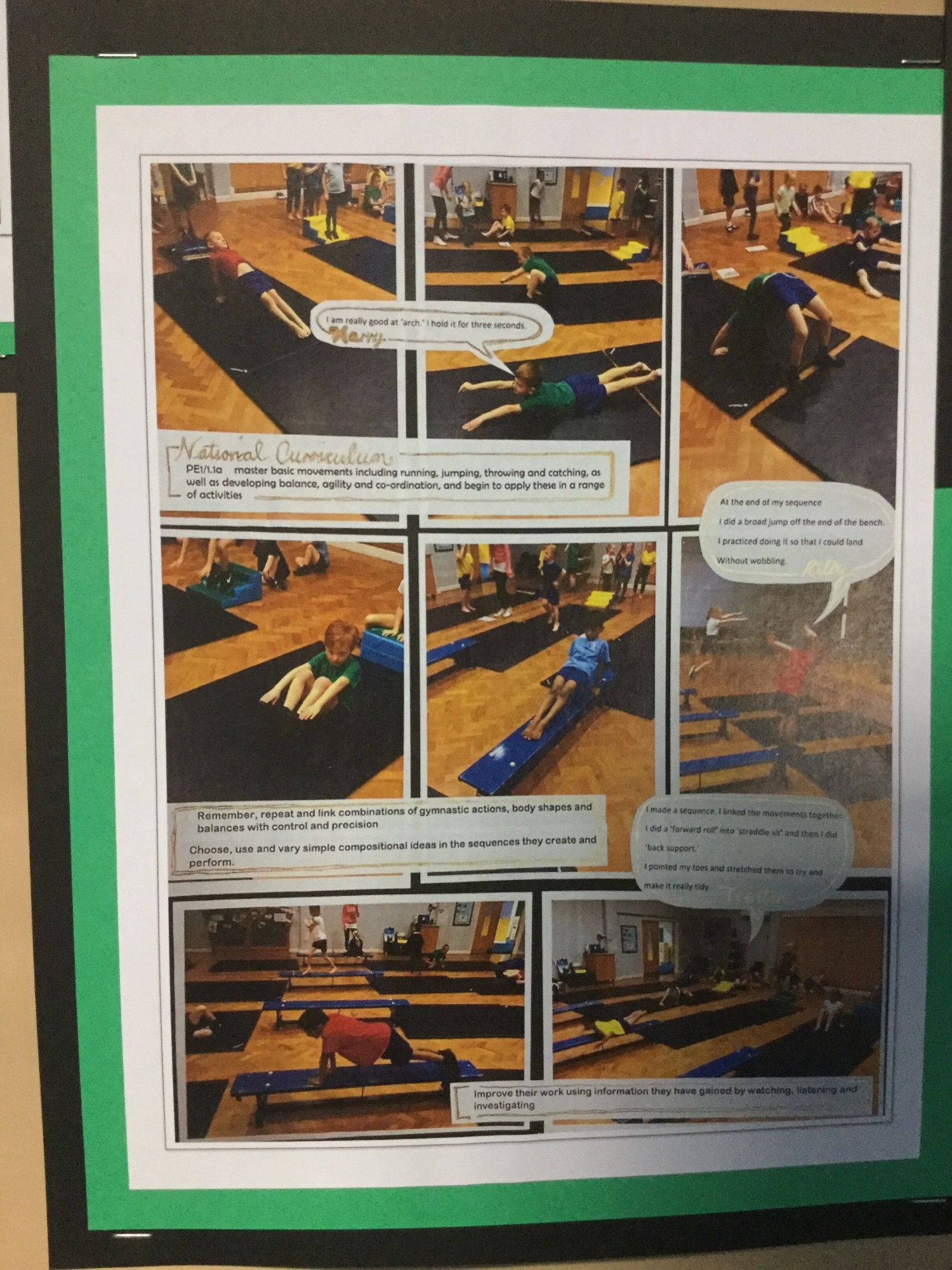 |
Water confidence sessions are held in Year 2, competence in swimming is covered in Year 4 and Catch-up swimming sessions are held in Year 6. There is a real sense of love for PE and sport throughout the school from pupils and staff alike. There are a wide range of activities on offer for the children to experience with an opportunity to engage in new activities and develop their skills further. Proof of how much our children enjoy PE and sport is reflected in their comments through Pupil Voice sessions. |
The PE curriculum is continually updated and developed to ensure it meets the new National Curriculum with extra opportunities for competitive sport.
Children take part in a wide range of tournaments/festivals throughout the year with visiting sports coaches working alongside pupils and staff.
The School Sports Premium has provided opportunities for PE and sport to be enhanced and developed giving opportunities for all to experience high quality PE and sport. The funding has also enabled us to provide high quality facilities for physical activity during playtimes and lunch times with the installation of basketball posts, football/netball posts, outdoor gym facilities and a mile running track.
As a school we hold fully inclusive Sports Days, which are jointly led by staff and Year 5/6 pupils.
We spot light different whole school events eg British Heart Foundation to improve fitness and with a visiting athlete who taught us about the challenges of being a Paralympic athlete.
At St Margaret's we want all pupils to have a love of physical activity and in order for this to happen we make adaptations to facilitate this. We have forged strong links with Manor Green Primary school where we have shared working practices. Skilled adults within our school, work collaboratively to support pupils with physical disabilities and those with additional needs. Equipment is adapted to cater for the needs of all children to allow them to engage and work towards their own personal challenges. Being inclusive is one of our key priorities in Physical Education.
Impact
|
By the end of KS2 children have built their skills in teamwork, paired work and individual performance at St Margaret’s. They have experienced and participated in a wide range of sports and activities and the opportunity to attend a vast range of extracurricular clubs and represent the school in a variety of festivals and competitions. We openly promote local clubs and sports organisations through the School weekly newsletter and website. Our approach to swimming allows pupils to engage at their level and we encourage families to swim with their children regularly. |
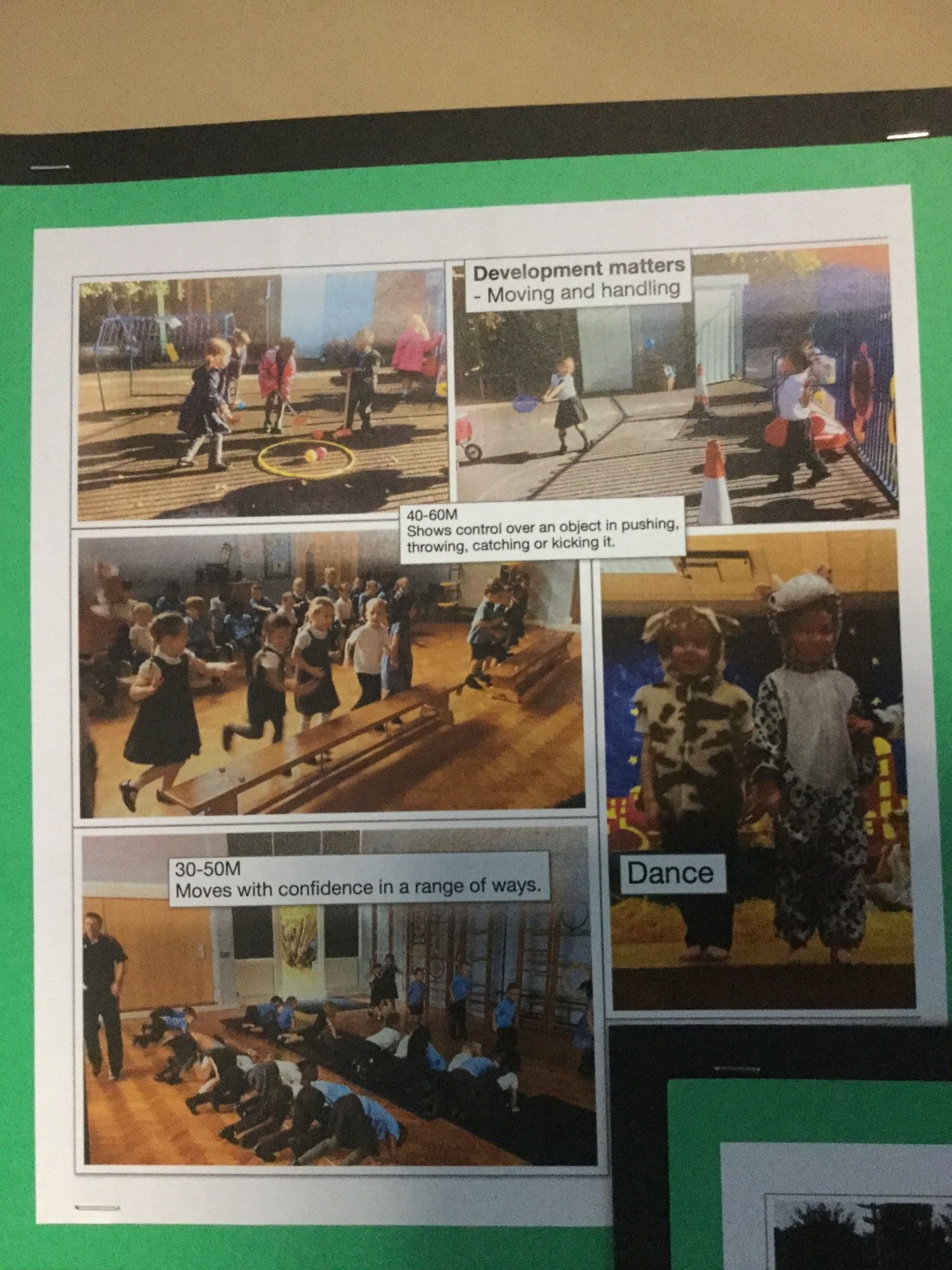 |
Year 5/6 Pupils attend Sports Crew training and the impact is seen on the playground during our Change 4 Life club and activities they support.
Throughout our school, all pupils participate in Physical Education lessons, break time activities, festivals, competitions and after school clubs.
For further evidence see:
- pupil voice;
- Data collected linked to participation in after school clubs and in sporting events;
- Whole school data linked to our fitness challenge;
- See PE portfolio;
- PE display and sports board;
- Sports Crew meeting minutes.
To download a copy of the PE Knowledge Builder, please click here.
To download a copy of PE Progression of Skills, please click here.
Relationship & Health Education (R.H.E)
Relationships and Health Education (RHE)
Relationships Education is lifelong learning about physical, moral and emotional development. It is about the understanding of the importance of marriage for family life, stable and loving relationships, respect, love and care.
Relationships education has three main elements:
- attitudes and values
- personal and social skills
- knowledge and understanding
Intent
At St Margaret’s Primary School our aim for the RHE curriculum is for all children to develop the skills needed to be happy, thoughtful individuals, capable of fulfilling their potential in the world. We aim for them to build and apply a repertoire of knowledge, understanding and skills in order to become confident, responsible and independent young people and adults. They are encouraged to develop their critical thinking skills as well as the skills they will need to keep themselves safe. RHE at St Margaret’s All children are able to access this curriculum equally regardless of gender, race or ability.
Implementation
The St Margaret’s programme consists of six age-appropriate broad topics that follow themes of personal safety and mental health and wellbeing:
- Healthy and happy friendships
- Similarities and differences
- Caring and responsibility
- Families and committed relationships
- Healthy bodies, healthy minds
- Coping with change
Each year group teaches these topics at the same time starting with Healthy and Happy Friendships in Autumn 1 and finishing with Coping with Change in Summer 2. Parents are invited in at the start of each academic year to view and discuss curriculum content. Each topic contains age-appropriate videos which can be used to enhance learning and broaden understanding of particular concepts.
RHE and Safeguarding are taught by the Deputy Headteacher during her weekly worships.
RHE in a Church of England School
The Church of England recognises that there will be some elements of the RHE curriculum that are sensitive and contentious. There is a need to acknowledge that there is a wide range of viewpoints and understanding about human identity, human sexuality and gender and that different views will be held within the school community.
Impact
All children will have been taught all curriculum objectives by the time they leave Primary Education and are ready to start the Key Stage 3 RHE and Citizenship curriculum at secondary school.
Achievement in the development of skills and values taught through RHE can be recognised through the end of topic assessments.
Achievement in the development of skills and values taught through RHE can be recognised through the use of Golden Time, Medals, Book of Brilliance, certificates presented in the weekly Head Teacher’s celebration worship. These achievements can be acknowledged with parents through informal discussions, weekly newsletter, parent consultations and end of year reports. Children also develop a knowledge base of key concepts and information, eg. the meaning of democracy, health processes.
This impact is also evidenced through our use of Thrive whole class screening, as well as displays and practical activities across the school.
To download a copy of RHE Progression of Skills, please click here.

